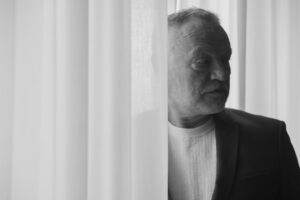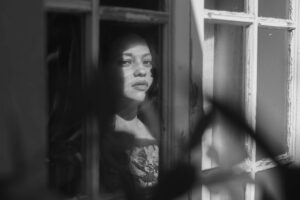There are encounters that you never forget, even when they happen in silence, within a dream, in the darkness of a room, or among the hoarse notes of a voice singing of pain, anger, the hunger for life. Such was the case for Anita Pomario, who lent her body, voice, and heart to Rosa Balistreri, a powerful figure in Sicilian folk tradition, in “L’amore che ho”.
My conversation with Anita was an intimate, intense journey, during which we delved into her creative and human process, made of fear and discovery, of the struggle to assert herself and the need to give truth back to a woman who never bowed her head. With gentleness and determination, Anita shows us how one can embrace a legacy without being crushed by it, but allowing oneself to be transformed.
And perhaps, in the end, this is the deepest lesson she gives us: that truly inhabiting a character is also a way to inhabit oneself better.
What is your first memory related to cinema?
I remember a time when I was in Germany, I was about 14 years old, and I was on a kind of three-month vacation there during which I was working. One evening, by chance, I watched the film “All About My Mother” by Almodóvar. For the first time, I felt shaken, I started to cry, and not just because the film had moved me: something had ignited inside me, it had filled me, and I felt alive. In fact, “All About My Mother” has always remained one of the films that moves me the most. The same goes for “Mulholland Drive”: it was the first time I watched a film on my own that stirred things inside me, that sparked reflections.
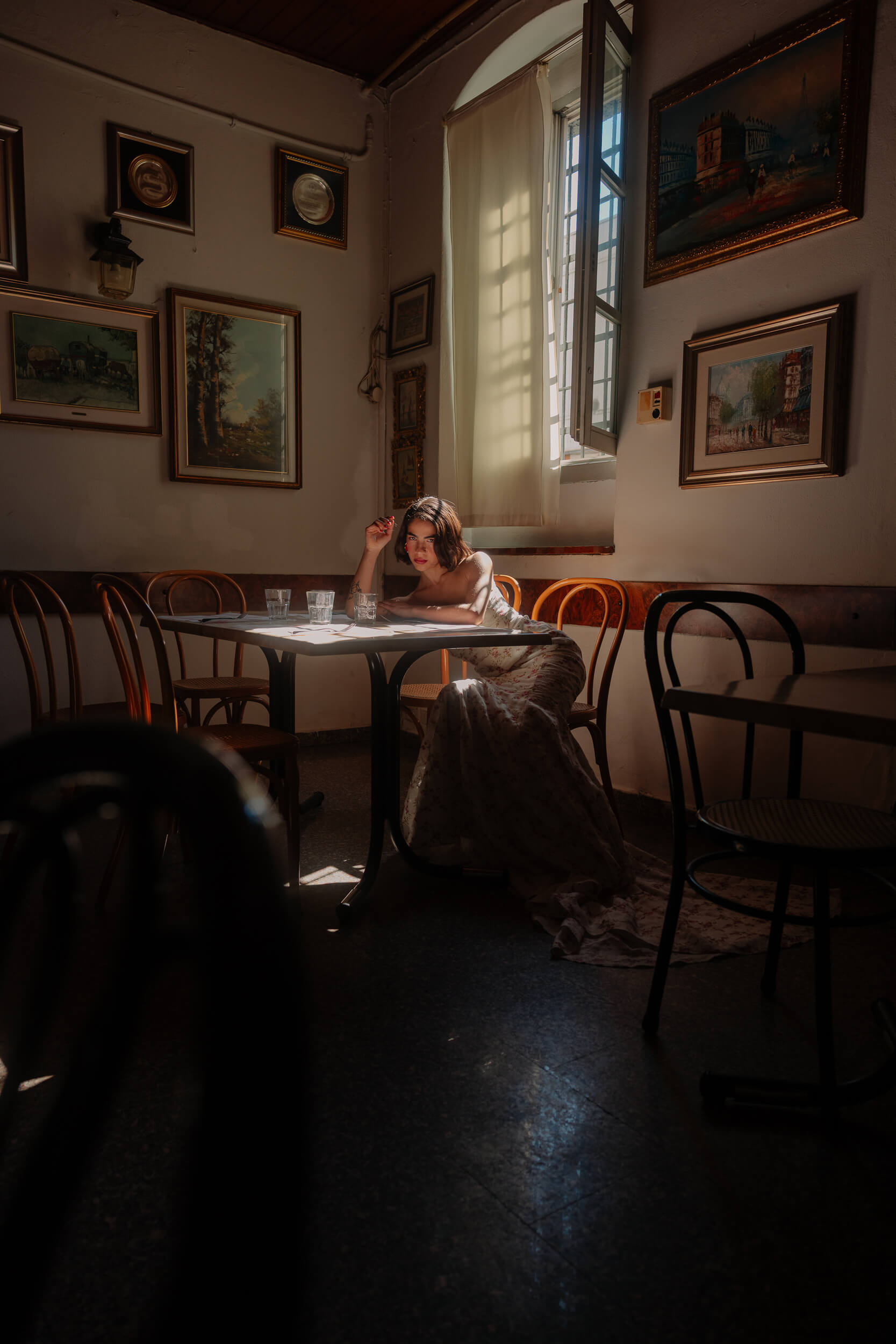
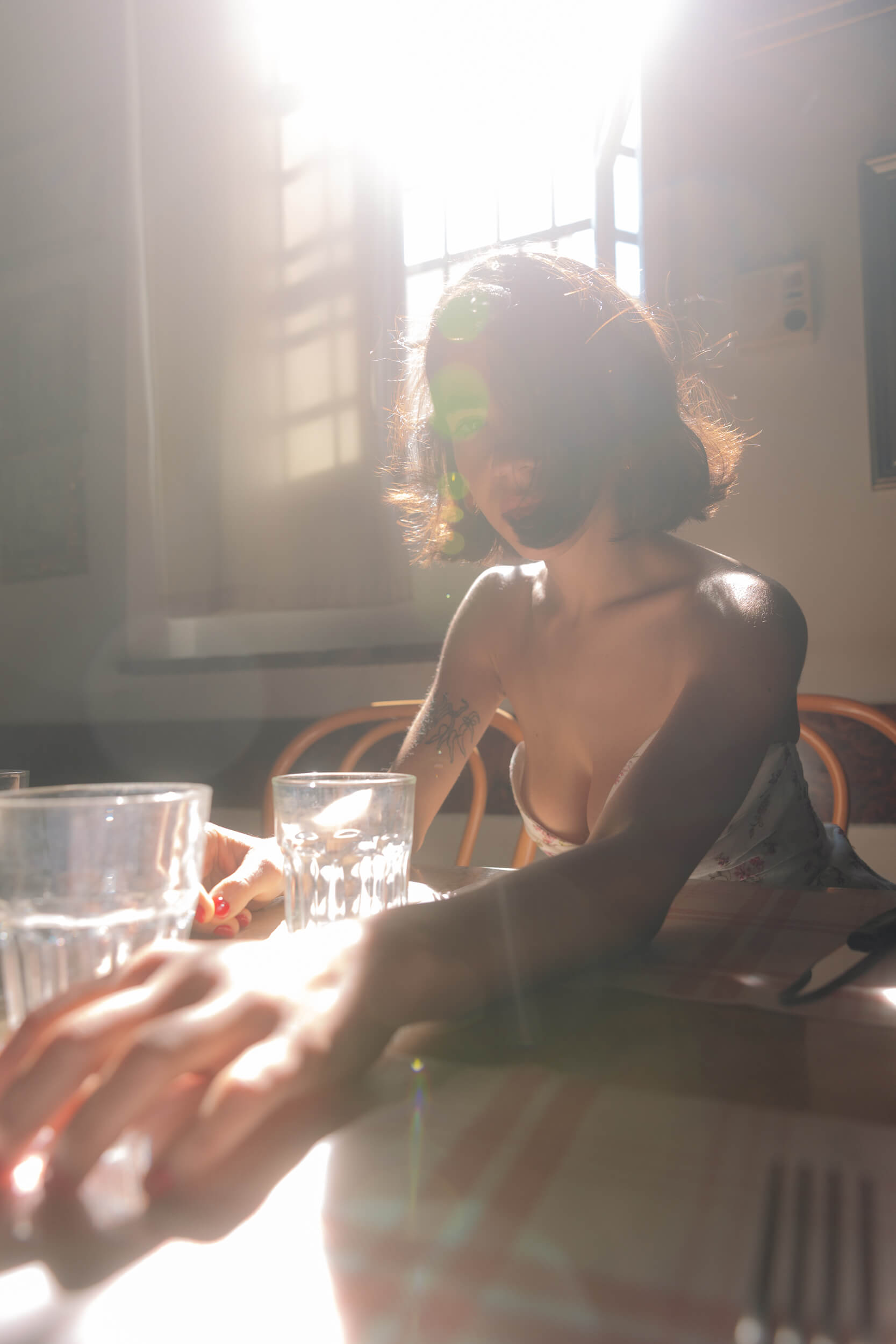
Now, playing the role of Rosa Balistreri in “L’amore che ho” was certainly an intense challenge, just as intense as the story the film tells. What was your first thought when you were offered this role?
When Paolo [Licata] called me to tell me I got the part, a couple of days before Christmas, I was with my mother in Milan, and he, after a year of not hearing from him, said to me: “So, are you ready? In a month we start rehearsals.” I was completely shocked [laughs].
At first, I was very scared. I felt an enormous responsibility toward a woman I grew up with, in a way. We, in Sicily, grew up with Rosa’s songs and I know that world very well—it belongs to me. It’s my grandmother’s world: Rosa’s story is the story of so many Sicilian women—and not just Sicilian ones, unfortunately. Also, I’m not a singer, so bringing out my voice was a huge challenge, and in that, Carmen Consoli was an incredible teacher.
Another challenge was the fact that there wasn’t much material about Rosa’s youth: I only had some photos and a video where she spoke. So, it was interesting to have to invent a bit of the adolescence of such a well-known character, and it was beautiful to meet her halfway. The more I studied her, the more I wanted to understand what she might have thought or how she might have moved, working a lot on the body, on reactions.
The more I studied her, the more I felt that she and I met at some point, and it was beautiful to say hello to her.
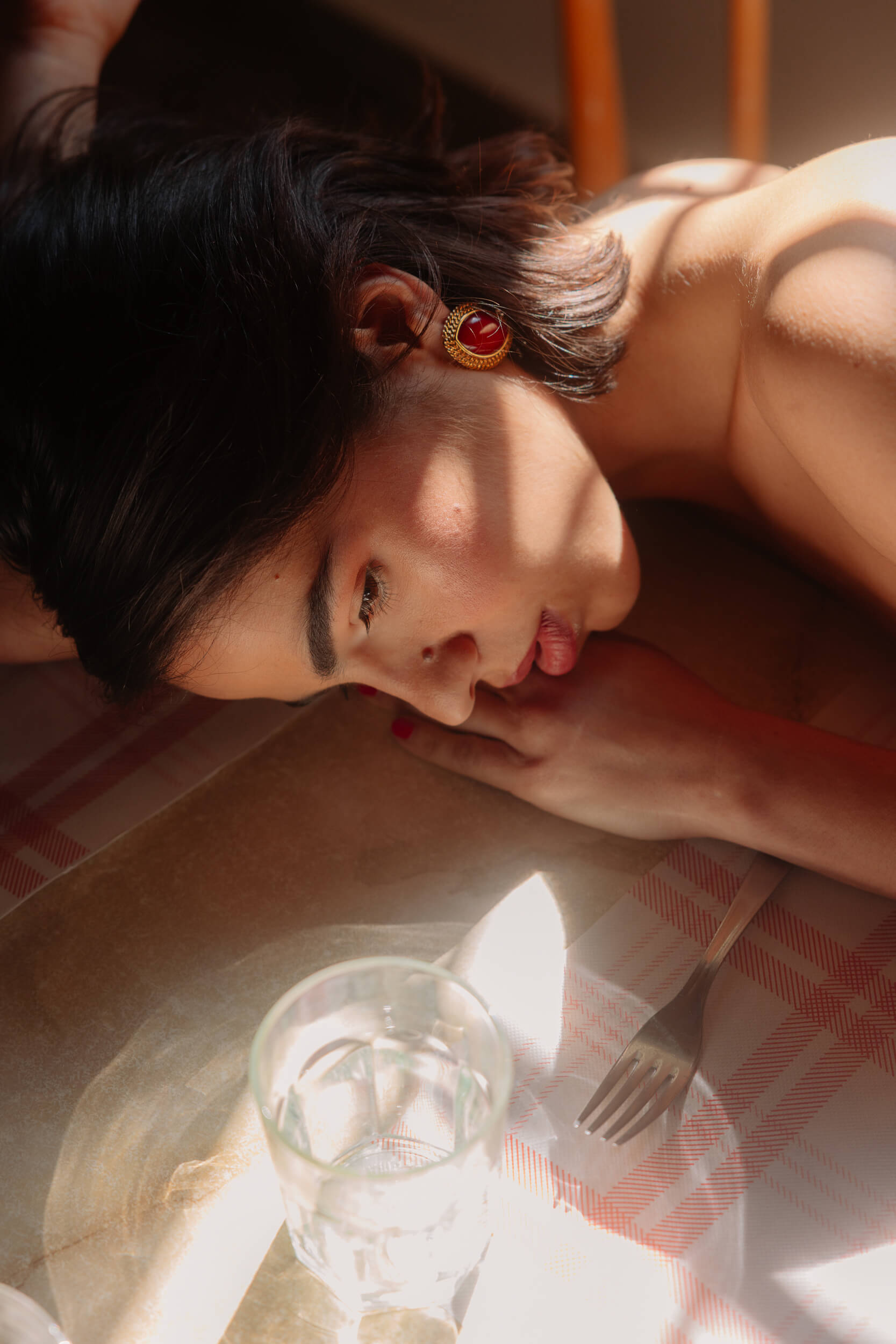

You became one and the same. But how did you prepare to authentically convey her humanity and her voice?
Well, I was always listening to her. There was a period when I felt the need to. And then, I have this habit: I like falling asleep by mentally repeating the monologues I have to perform, the lines I need to say, and I do it especially as a memory exercise. But when I had to play Rosa, I remember that I would fall asleep with her songs. The day before we started shooting, I had this crazy dream where the child version of me was talking to my adult self and said, “Have fun, run.” And funny enough, the very first scene we shot was Rosa running down the street to get to Angelino’s house, so it was magical—like a premonitory dream telling me to play, to be carefree in a way Rosa never got to be.
For me, it was beautiful to try to understand her and accept her for who she was. Among the videos I watched, there’s one that really inspired me. Context: she was illiterate, especially when younger, but she had immense strength and a drive to break through.
In this beautiful interview, they ask her how she learned to speak Italian, and she says, “I learned Italian by writing my name, Rosa. First the R, then the O, then the S, then the A.” I found that to be an extraordinary image of a woman who learned to live thanks to and through herself, on her own skin. My job as an actress was to let myself be guided by her essence, which was not easy at all.
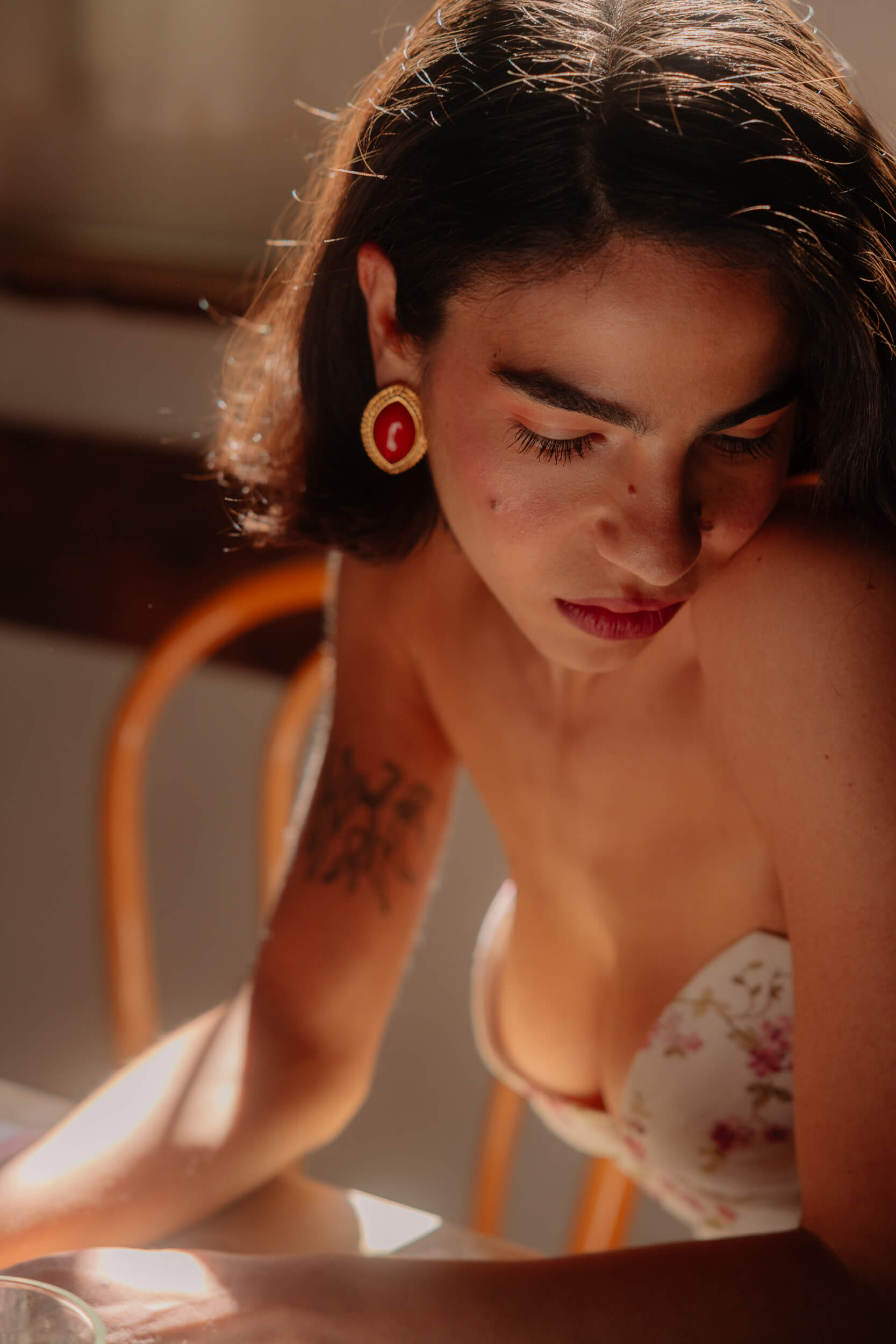
“Have fun, run”
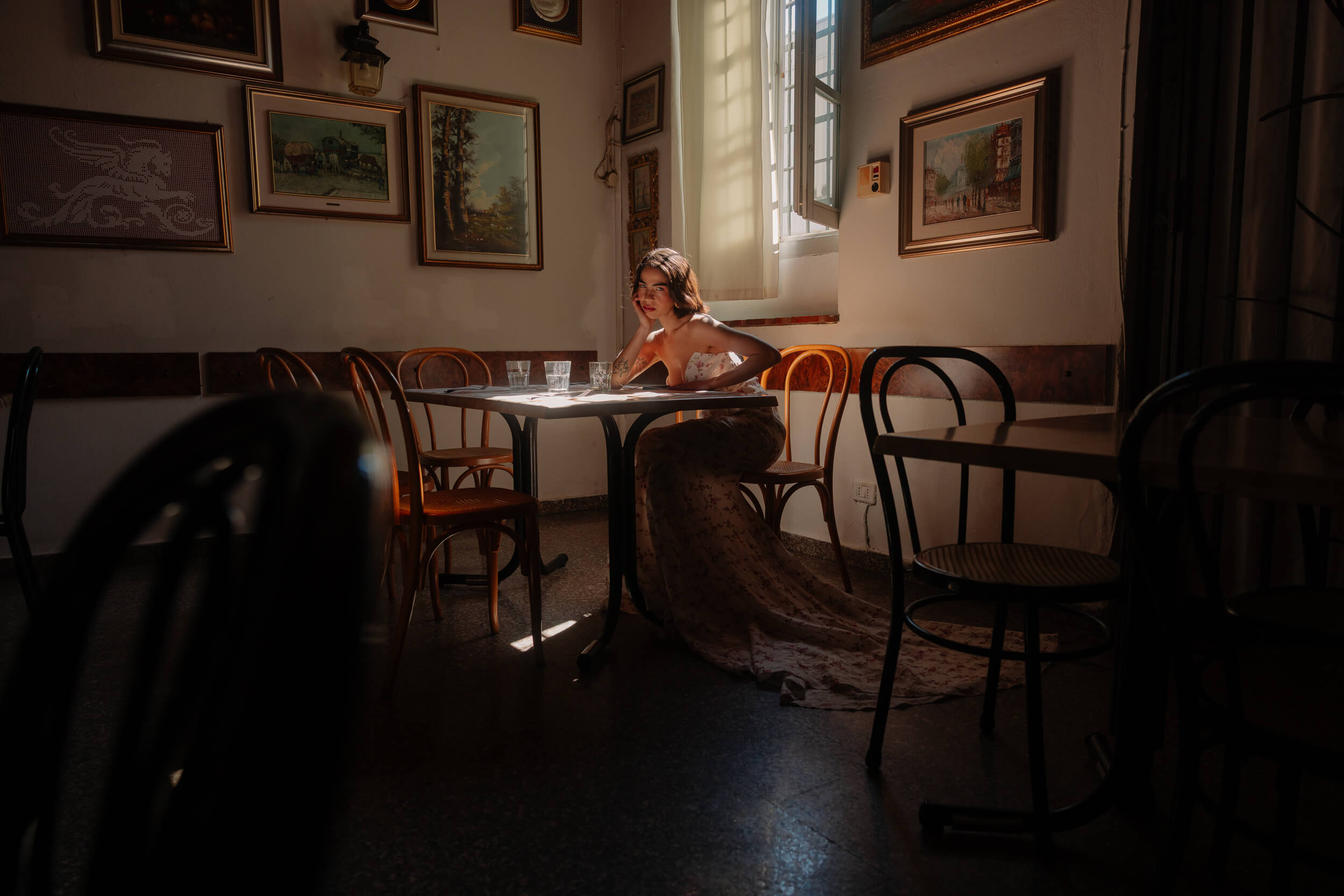
Carmen Consoli, who also appears in the film and composed the original score, has often said how Rosa was a beacon for her. Did you get a chance to connect over this shared admiration?
Carmen is an incredible person, a ball of energy. It was amazing working with her because she helped me let go. During singing rehearsals, she would tell me, “Don’t sing, interpret. I don’t care if you sing well, I want to hear that thing in your voice that no one else has. Don’t worry about being in tune: there’s that scratch, that tone in your voice that’s only yours, and that’s why you’re playing Rosa.” Carmen was essential at a time when the idea of singing scared and embarrassed me. Thanks to her, I realized I didn’t need to be a singer—Rosa wasn’t one either, she sang out of necessity, so I had to bring out that necessity, which goes far beyond being in tune or not. We didn’t have much time to rehearse, but Carmen and I spent hours at her place repeating the songs, singing together, and she’s truly talented, so it was beautiful just to share space with her for a while.
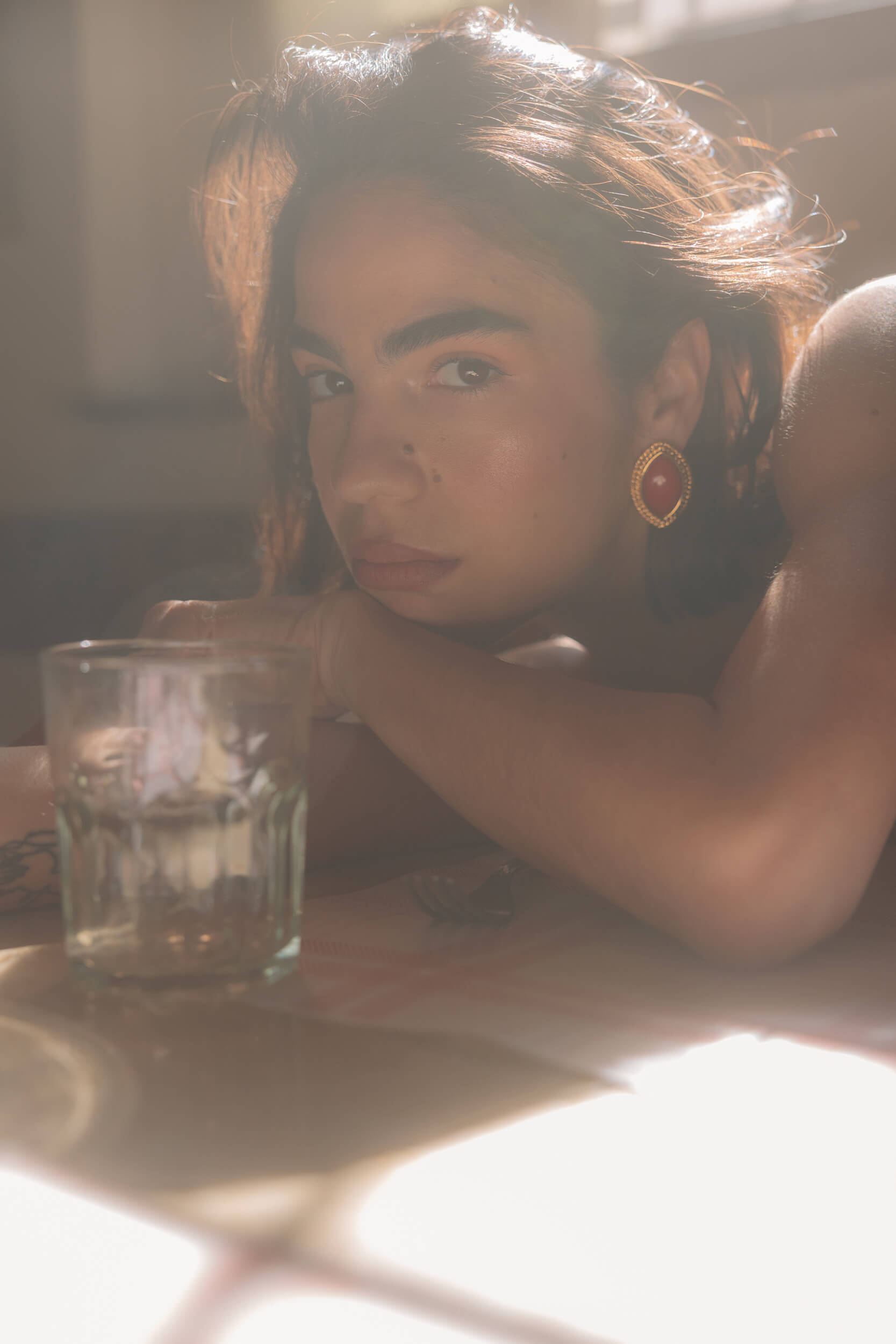
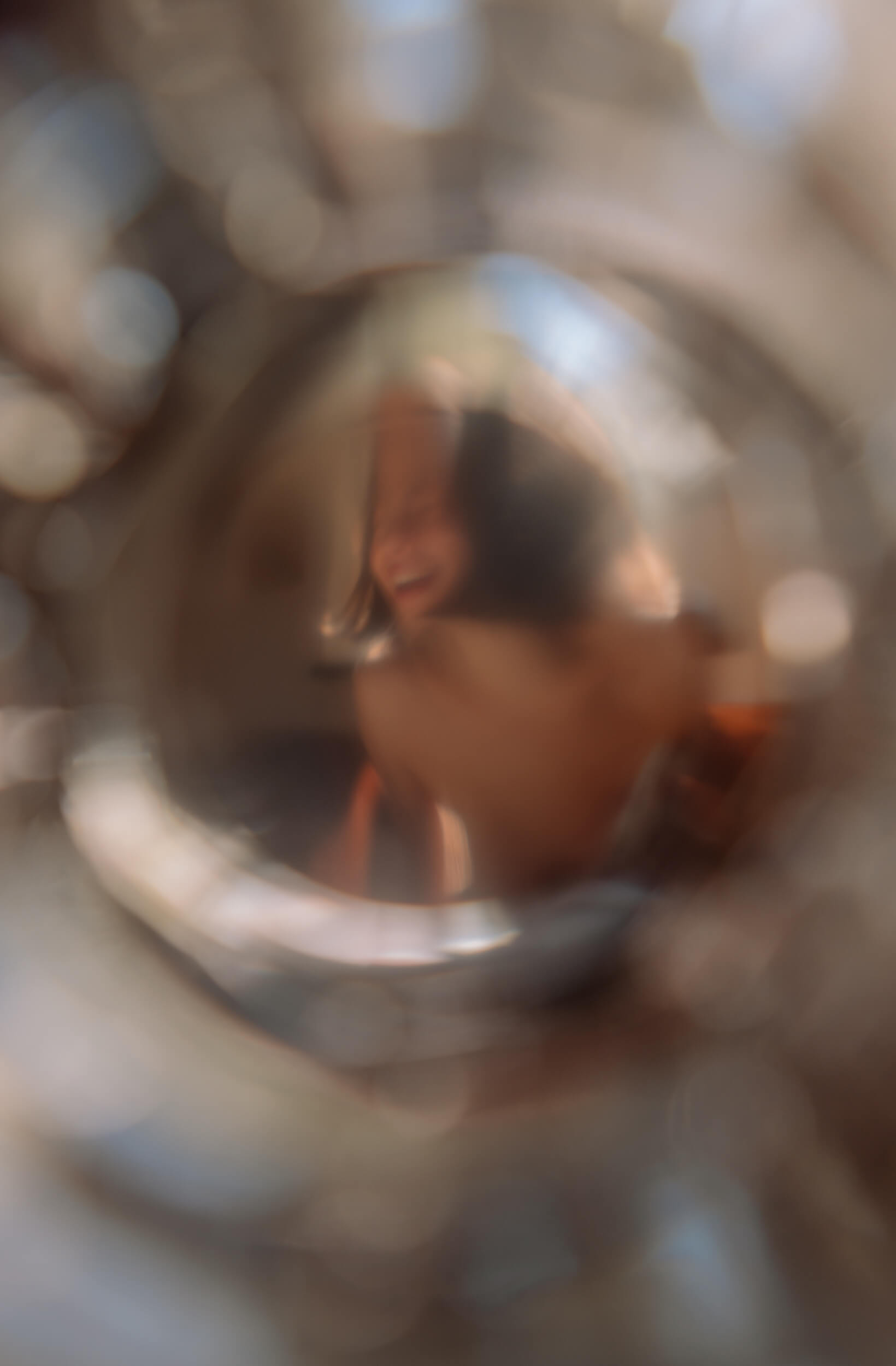
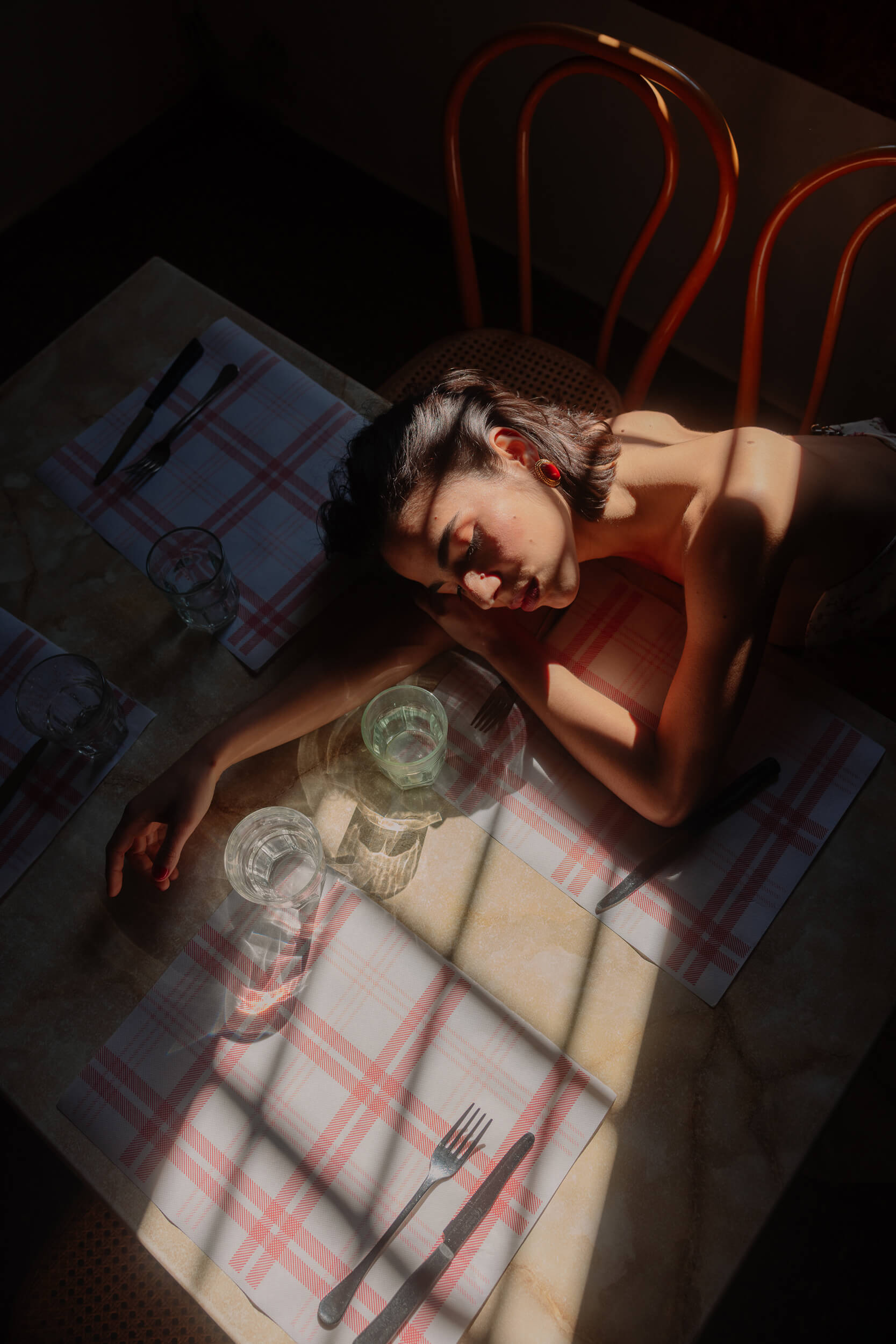
Rosa was a woman who fought against the Mafia, patriarchy, and social injustice. What struck you most about her courage and political vision?
That she never accepted compromise.
Especially today, I find that incredibly difficult—something I probably wouldn’t have the courage to do, even just in daily life. Rosa never settled, never chose the easier path just because it was more convenient. And the fact that a woman was able to carry on her idea of justice, of values, a woman who came from nothing—well, that means it’s possible for everyone, even though her refusal to compromise led to a hellish life and a lot of suffering. Because things would’ve been easier if she had said yes on several occasions. But she only said yes when she wanted to, and that taught me so much. Also, the fact that she never lost faith in herself: she was extremely arrogant, very difficult. But that was her way of fighting the world, recognizing her own worth because no one else ever had. Rosa used to say, “I believe in what I do, I do it for a reason.” And I, who do this job, often ask myself, “Why am I even doing this?” But then I remember it’s important because it’s my way of carrying on an idea.
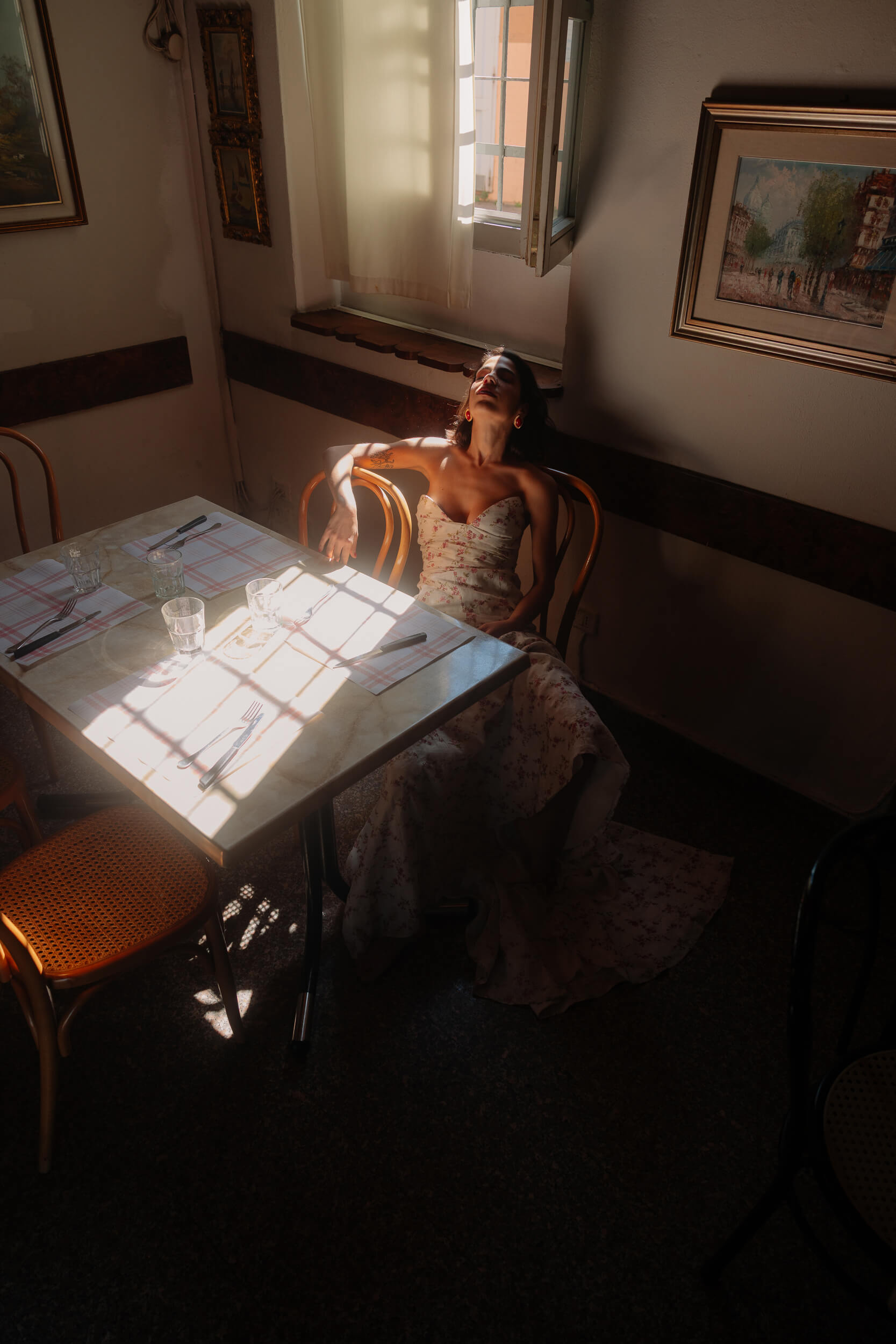
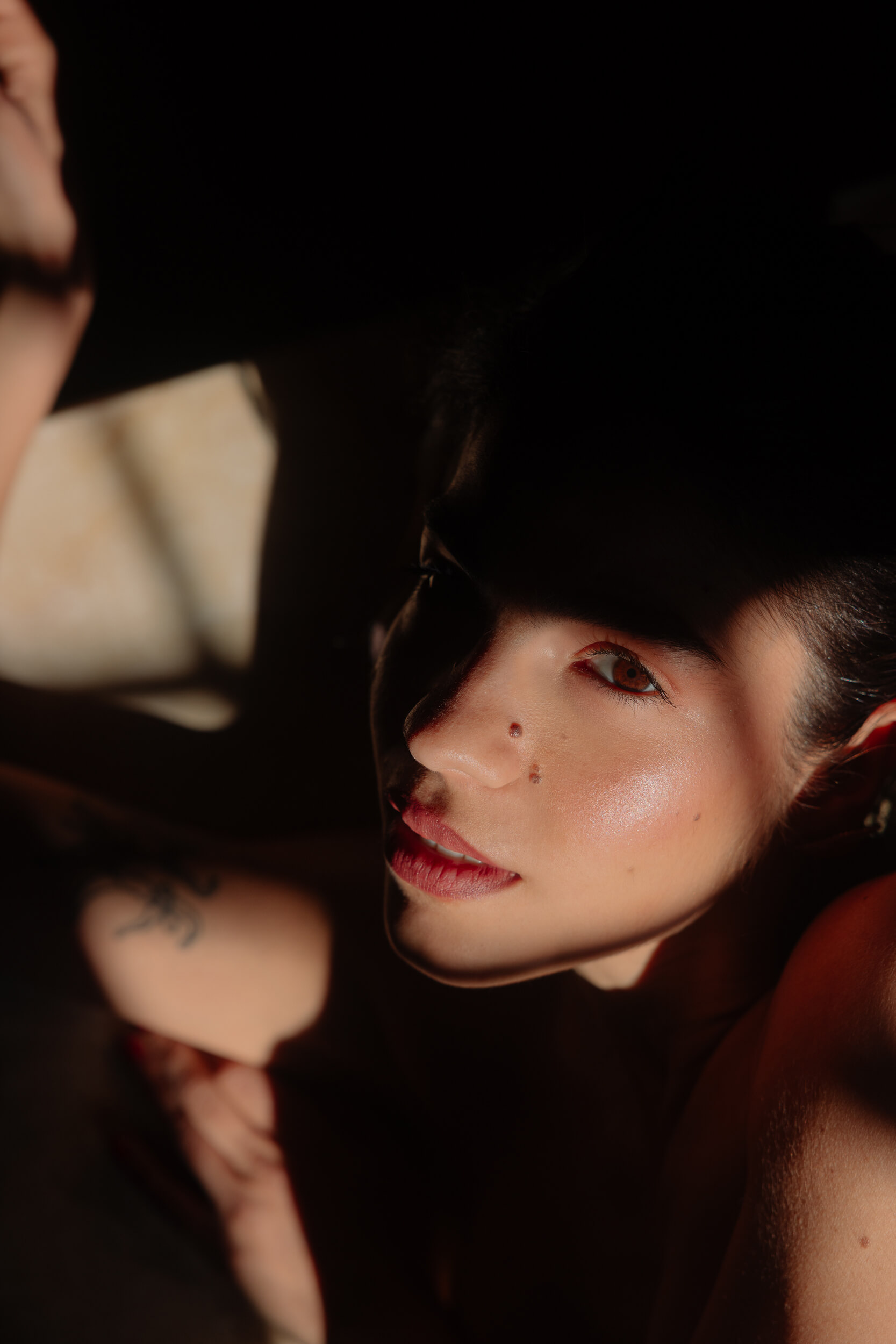
What do you hope the audience takes home after watching this film?
Freedom. The celebration of having courage in life, despite everything. I don’t want it to be seen as the classic sad, dramatic story about violence against women, tied to Sicily as usual. I think the film offers much more, especially because it tells the story of someone like Rosa. I hope what emerges is her hunger for freedom, her desire to bite into life, to steal it with her nails, to sink her teeth into it—because I think she lived in that kind of raw, feline way that I find extraordinary. It means she truly lived.
So I’d love for people to leave the theater wanting to bite into life.
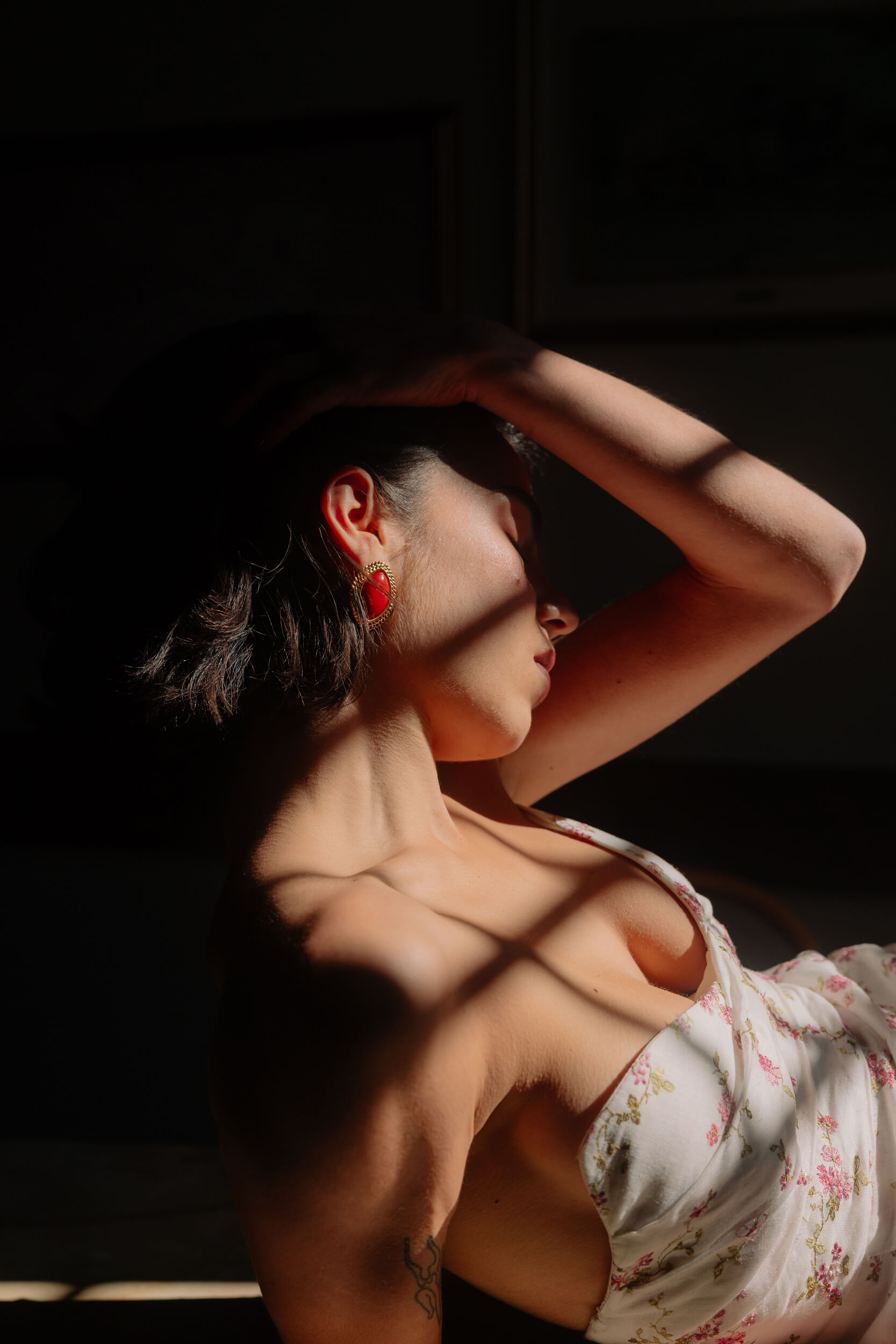
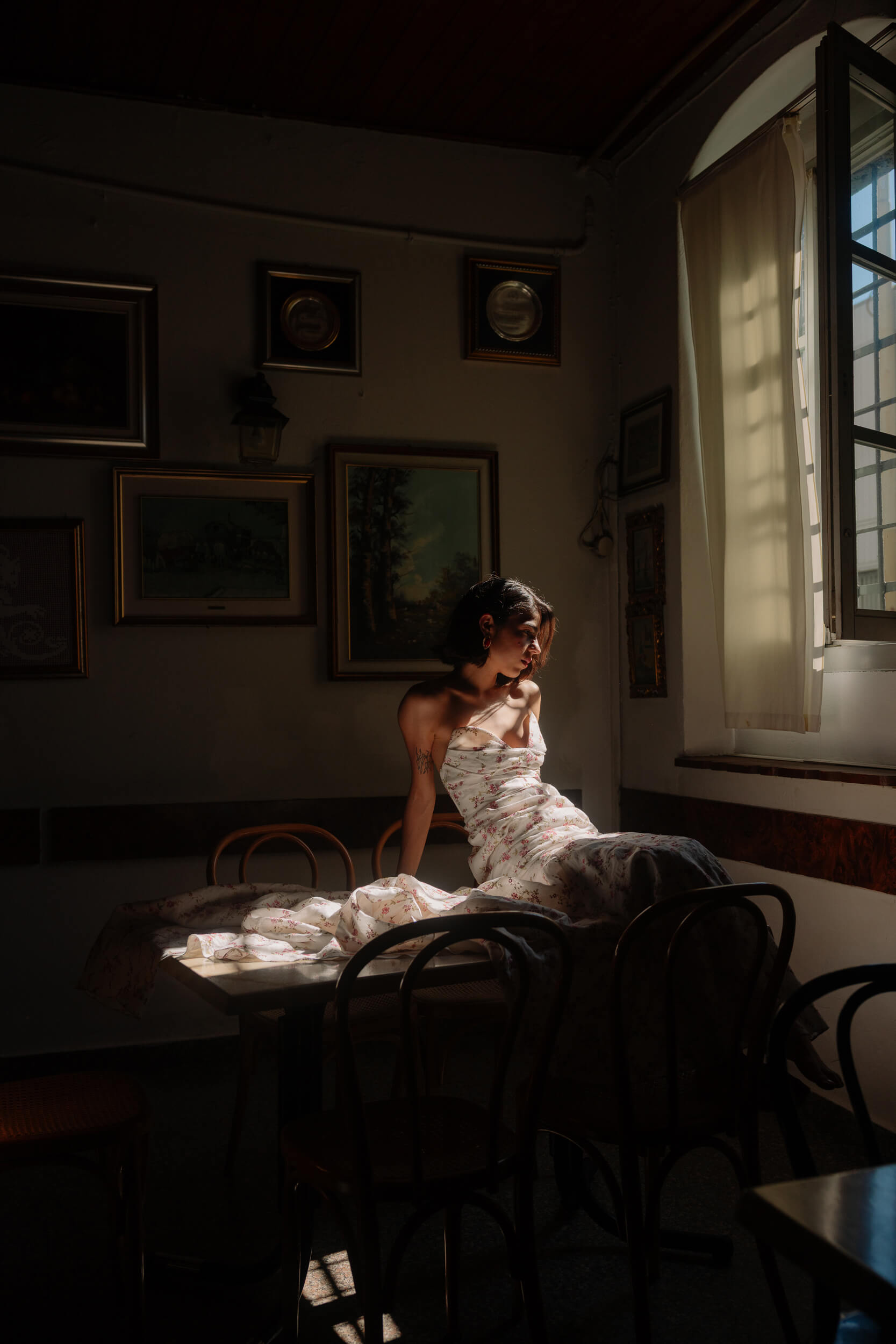
And what emotional legacy has this character left you with?
For me, it was a more complete, more “rounded” role because it was the first time I got to have fun, to build something. Figures like Rosa have always inspired me deeply, and I was so moved by the idea that I had to give voice to this character, who left me with a lot of tenderness. Rosa also helped me understand things about myself that I now appreciate much more than I did before. I think if I met Rosa now, as she was when she was young, we could be good friends. Sure, maybe we’d fight all the time because we have very similar personalities! [Laughs]
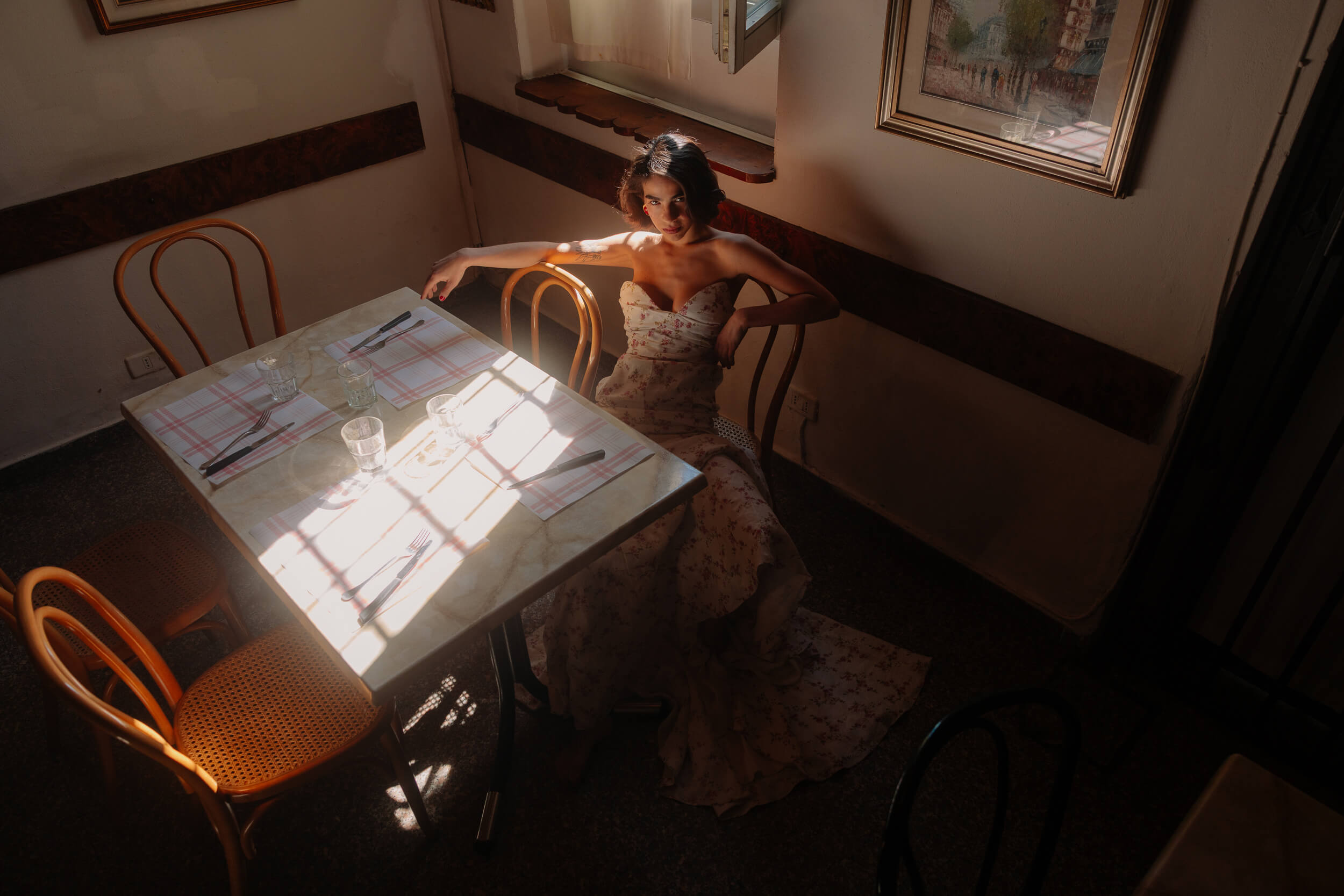
“For me, it was a more complete, more ’rounded’ role because it was the first time I got to have fun, to build something”
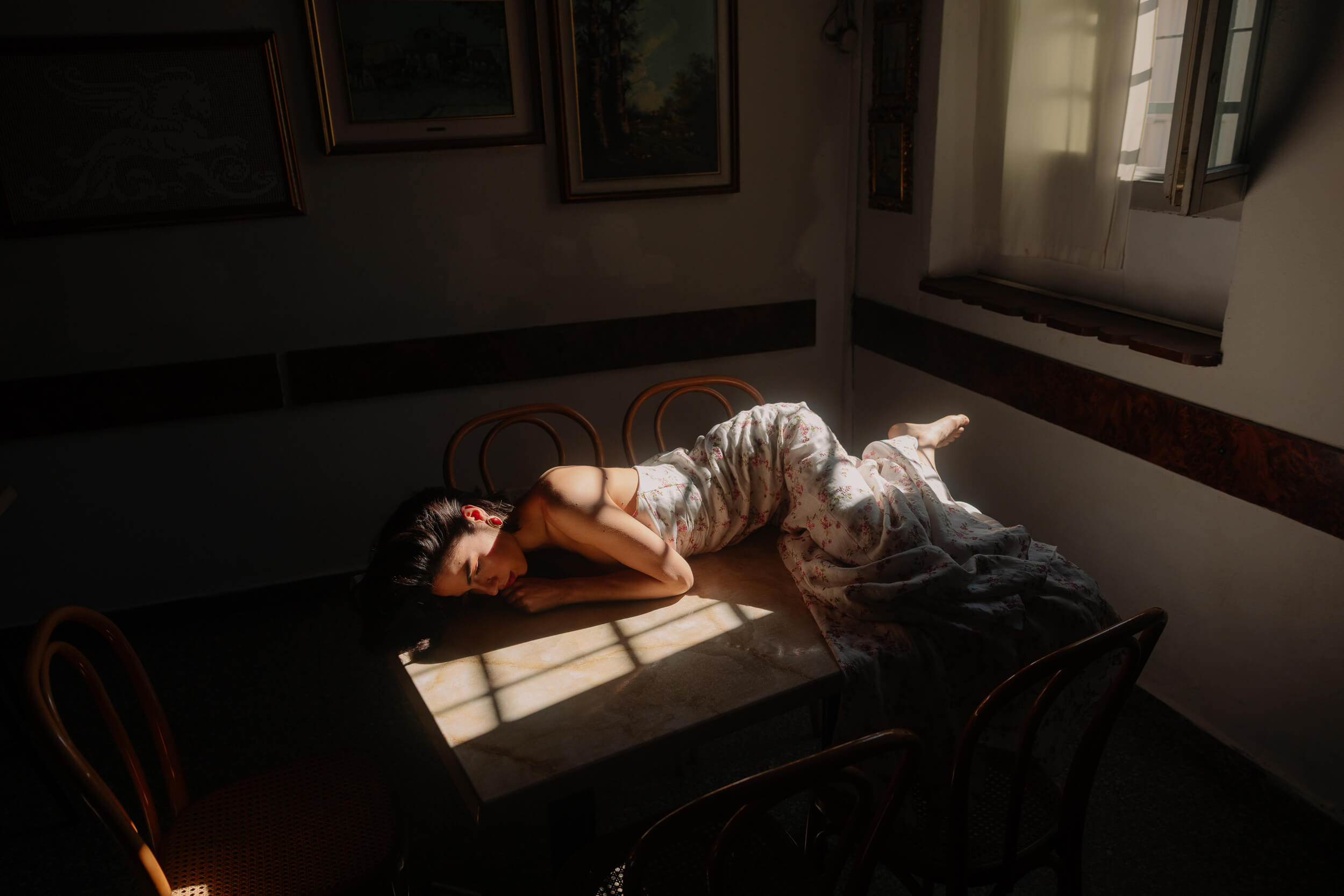
You spoke so warmly about your time on set—was there a moment during filming that particularly stayed with you? Any anecdote you’d like to share?
Yes, there was a really funny moment. During the lunch scene, where we’re sitting with Rosa’s sister and brother-in-law, at one point Rosa has to do something extreme in front of everyone. First of all, I have to thank the director so much because he completely trusted my madness: in that moment, I had entered a kind of vortex where I just wanted to do things, try things, without fear of failing. And that led me to completely improvise that scene. So it became this epic moment where I started yelling with a fork in my hand [laughs], and we only did one take! I really had fun—one of those moments where I thought, “Wow, how great to be this free on set.”
That’s what I love about cinema: never knowing exactly what’s going to happen in a scene.
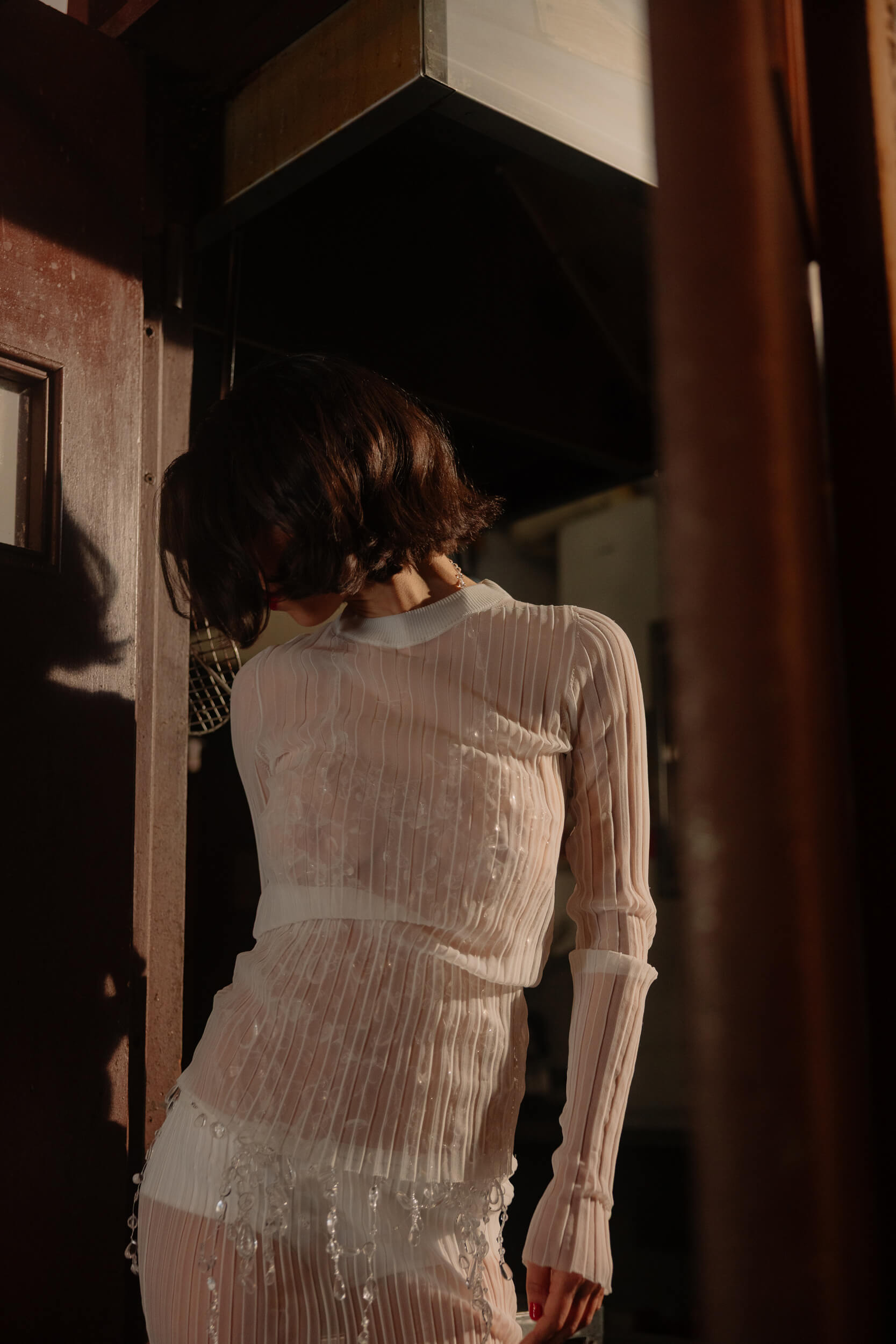
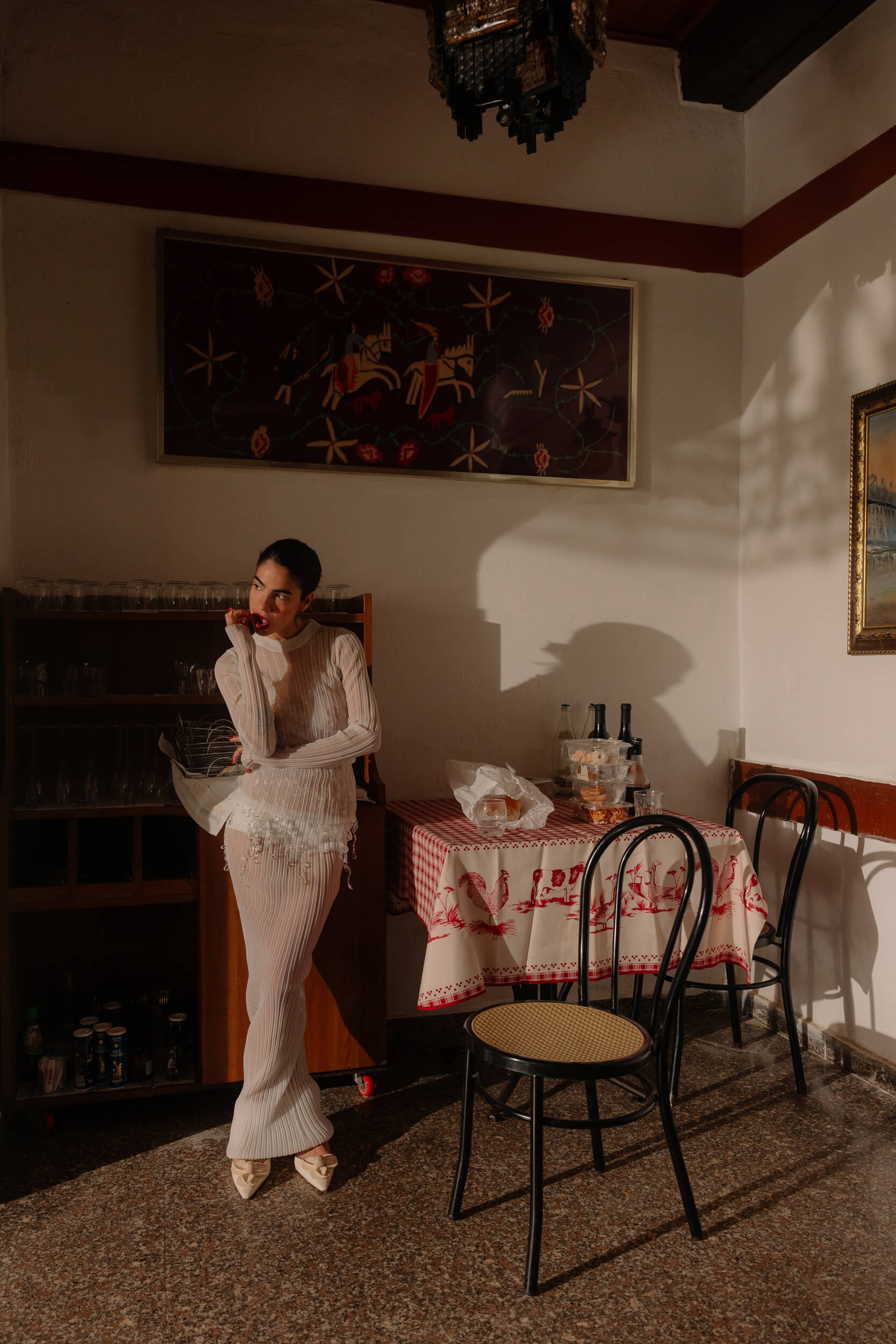
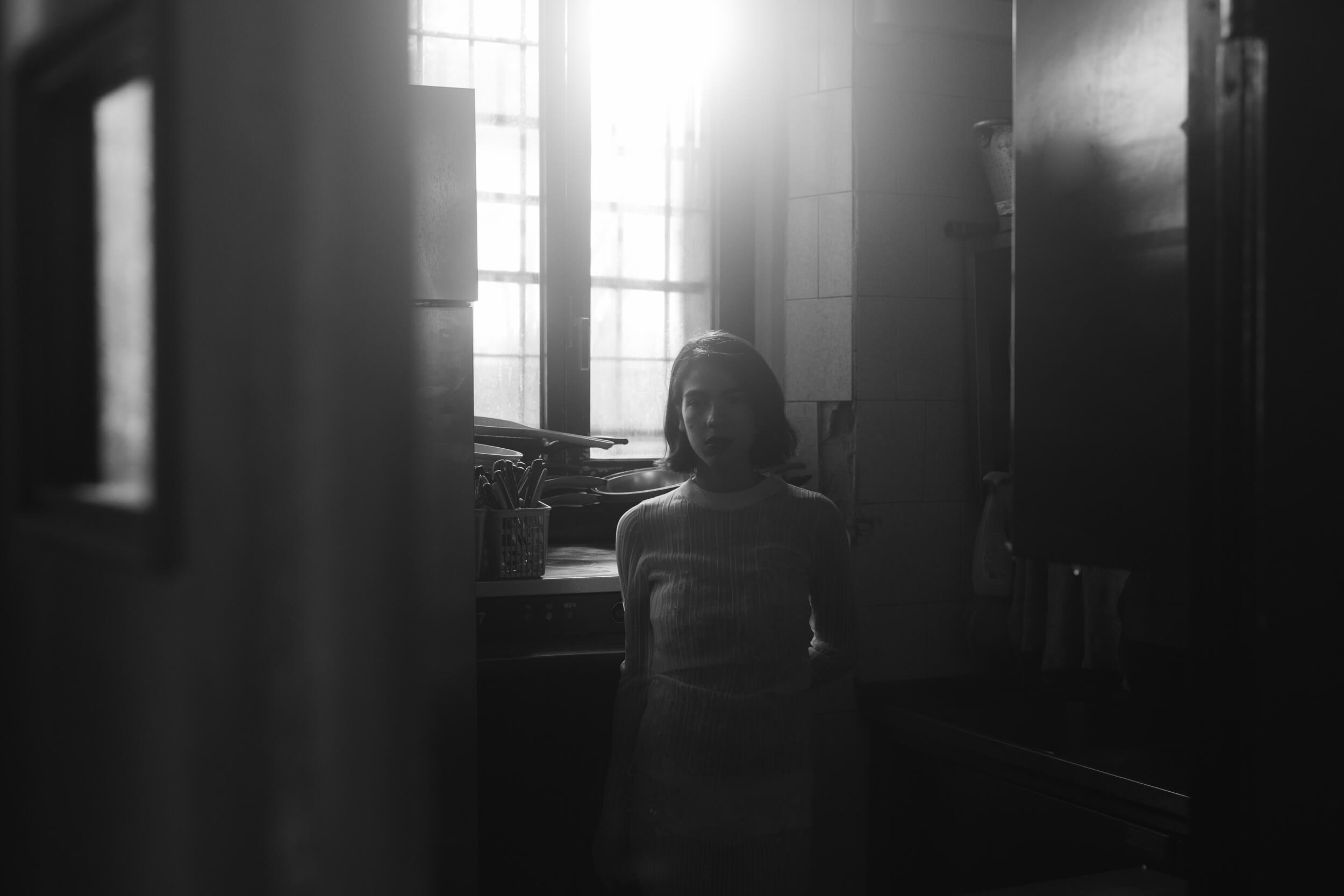
Earlier you mentioned discovering things about yourself through this role. What did you learn about yourself thanks to this experience?
I learned that I don’t like compromise, that I’m not made for it—I don’t like middle grounds. I also learned that sometimes, unfortunately, you can’t live the way Rosa did. And in today’s world, very few people do. I discovered that I too place enormous importance on love, like she did. And I learned to recognize my own worth beyond what others say—beyond any recognition you might get from others, whether public or personal. Our value is something that belongs only to us. Many times, especially recently, I’ve doubted myself, thinking, “Maybe there’s something wrong with me, maybe I’m not enough for this person, for this job.” But I’ve learned to recognize myself. Now I know who I am. And knowing who you are, in my opinion, is essential to keep going and to not be afraid.
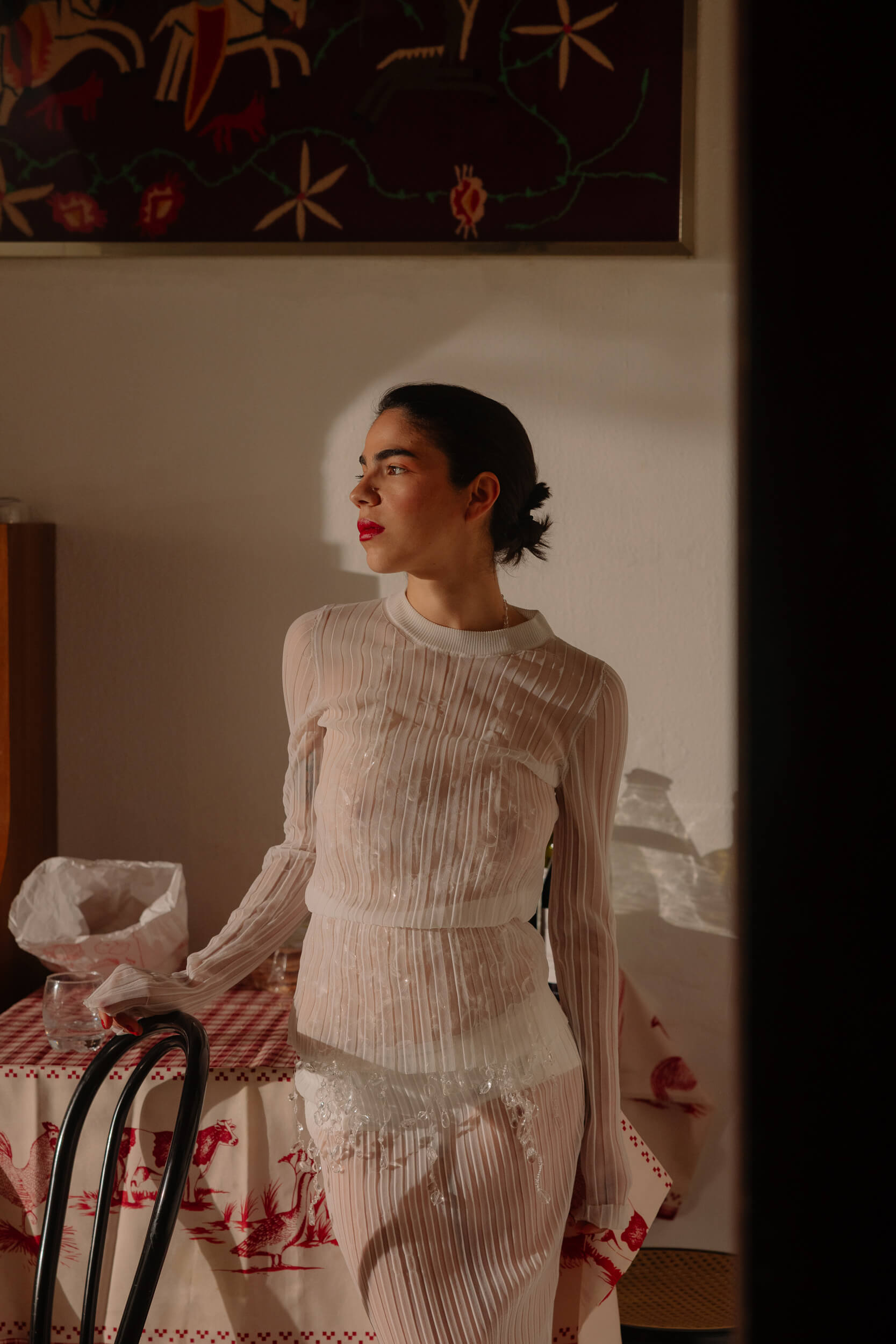
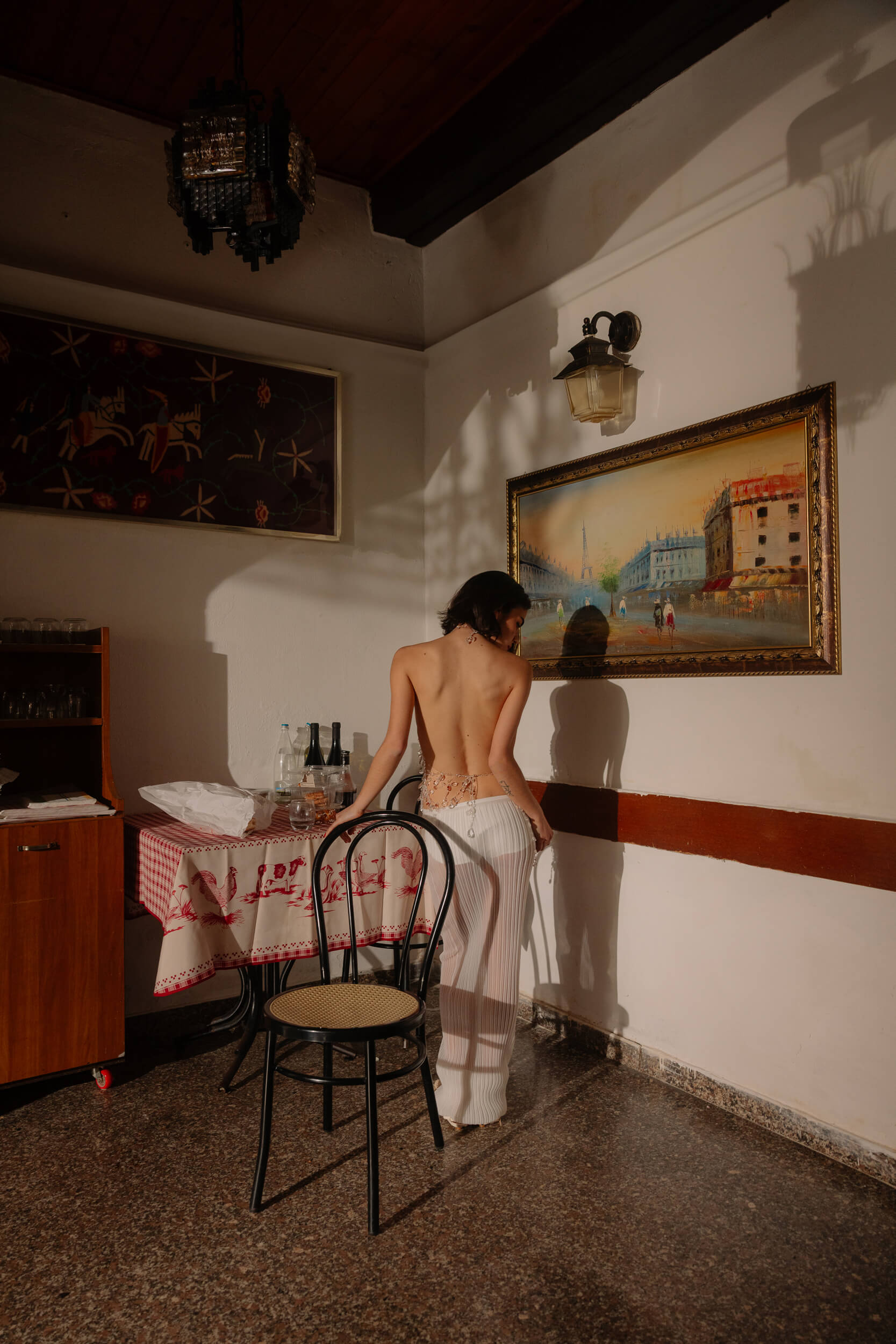
“Our value is something that belongs only to us”

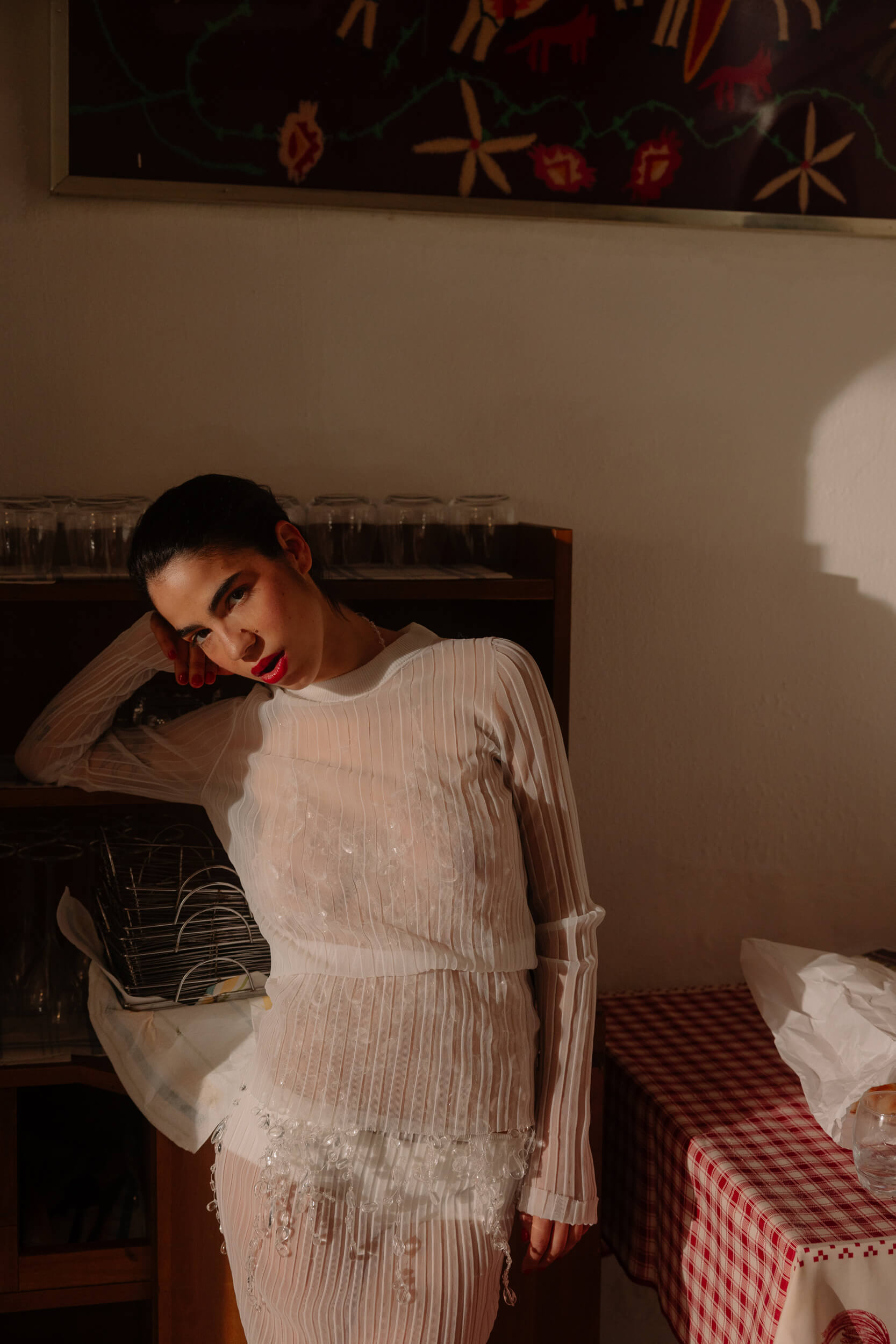
The film was shot entirely in Sicily, right? For many, it’s also a journey into the island’s deeper, more authentic soul. How was it for you to immerse yourself in those places and that culture—which is also your own? How was it to relive it in a past era?
It was surreal. Actually, we shot in a place I’d never been to: Piana degli Albanesi. I didn’t even know it existed. It’s a mind-blowing place: it’s called Piana degli Albanesi because a community of Albanians settled there from their homeland. It’s a magical place, full of Albanian restaurants, with road signs in Albanian—a tiny micro-community. It doesn’t even feel like Sicily. It’s nestled in the hills, completely removed from the world. While filming, I spent a lot of time alone because I had a house in the city center, which was a bit far from where everyone else was staying. So I had a kind of mystical experience, feeling extremely abandoned—especially considering the character I was working on, which already leads you into a state of closure, of solitude. It was very difficult. I remember I couldn’t sleep; I had strange dreams, as I always do when I’m working. You know, when I work, I always find myself in a sort of “place that doesn’t exist,” which is the nature of a set or stage: that non-place, that parallel universe built just for you.
In that context, I felt like I was truly in another world, where everything moved outside of me.
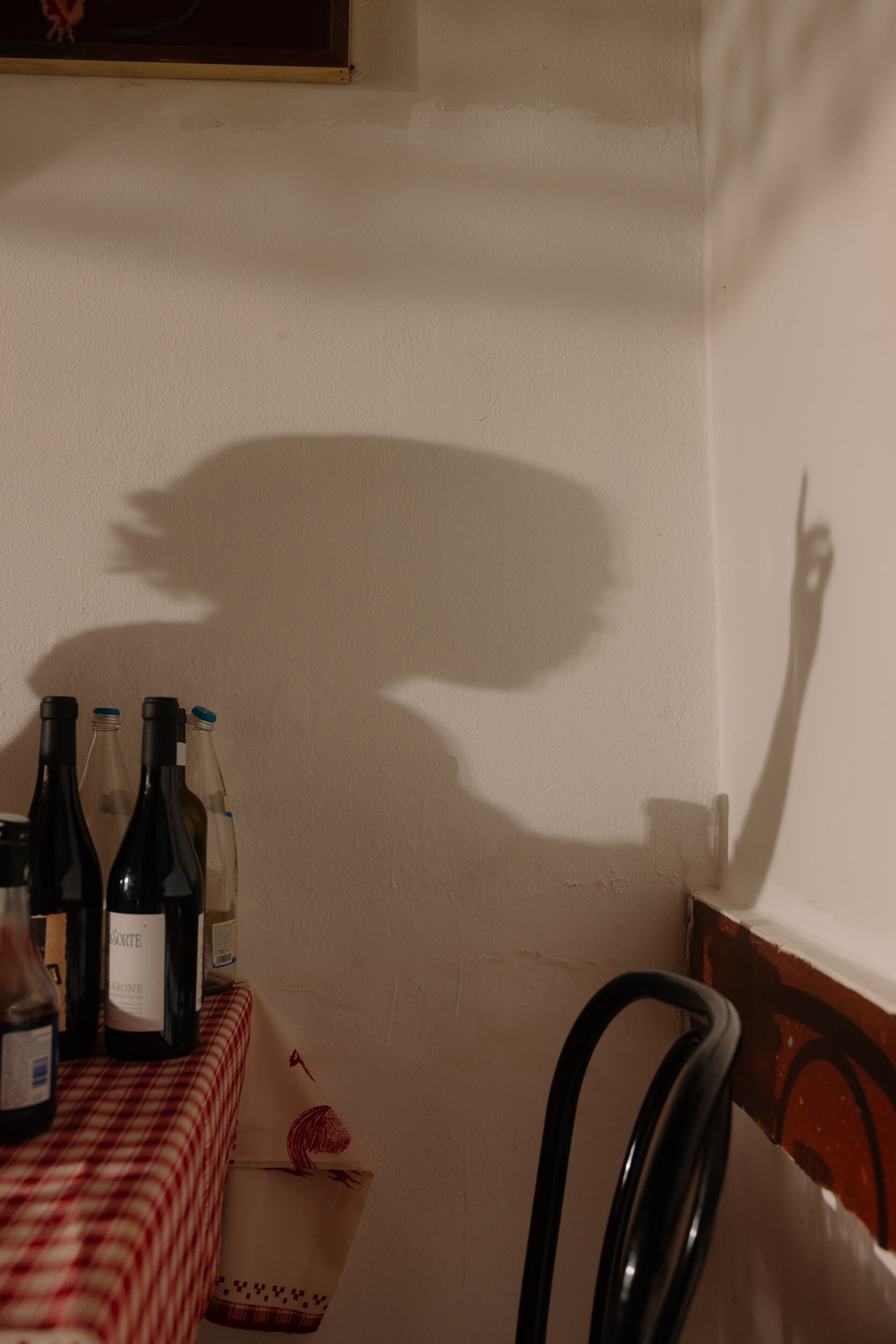
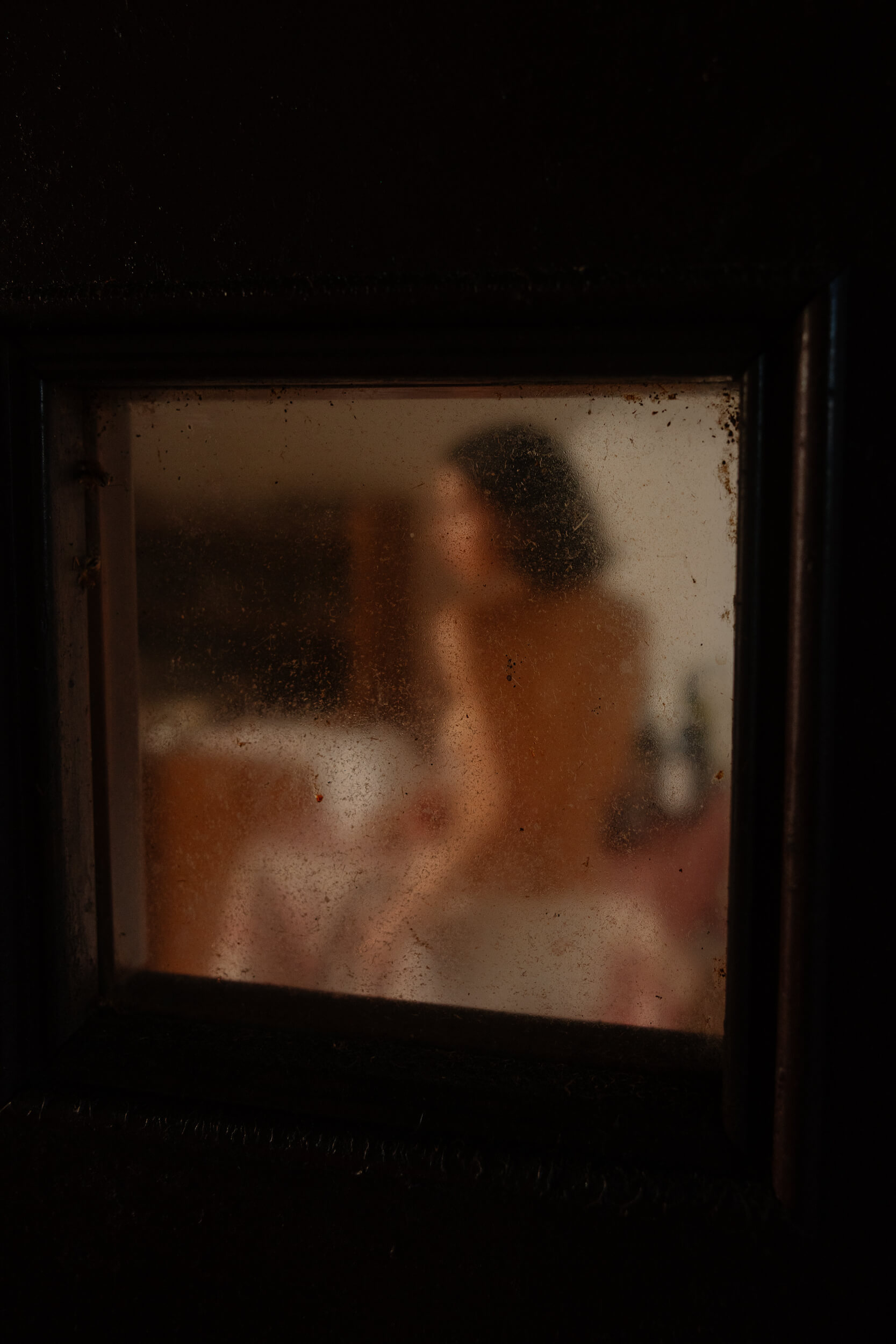
Your artistic journey has been international—between New York, London, and Berlin. How does your theater background influence how you build characters for film or TV?
Theater is fundamental to me. It fully represents what I consider my work—it’s a necessity. Theater taught me how to express that need, to use it, and every time it transforms into different characters. It’s a need to connect, to express, to share. Theater teaches you how to play, to not take yourself too seriously, to take risks, to suffer genuinely, to put yourself out there. It’s like being on the edge of a cliff when you’re on stage. Playing with that sense of risk in cinema is very fun, because on set you can afford to make mistakes—and mistakes are the most magical thing that can happen. You have to let yourself be surprised by yourself. I have fun when I play with myself—it’s like a constant challenge, and there’s a long period of study behind it, full of reading, understanding, listening. And then, you forget all that study when you get to set or onstage.
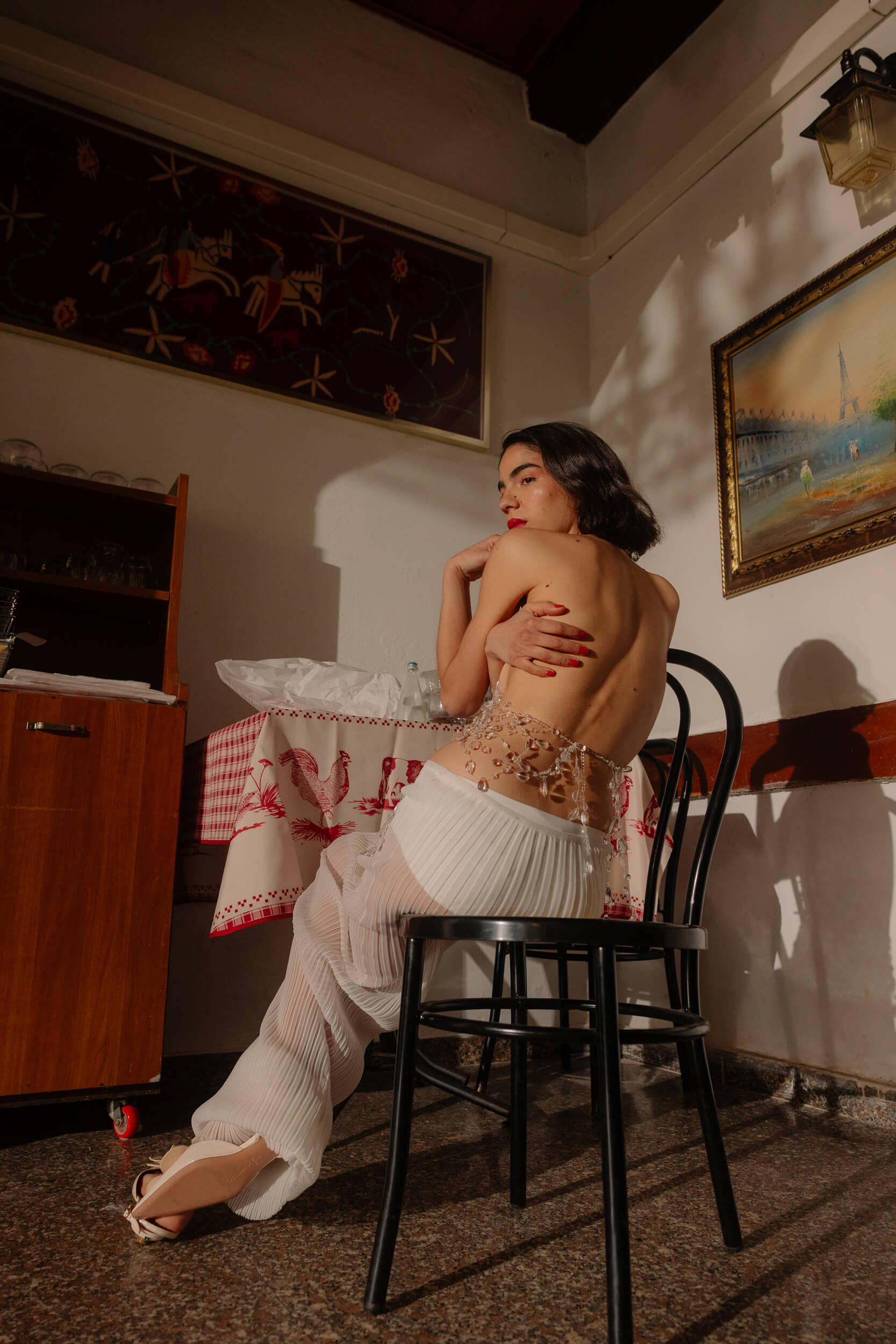
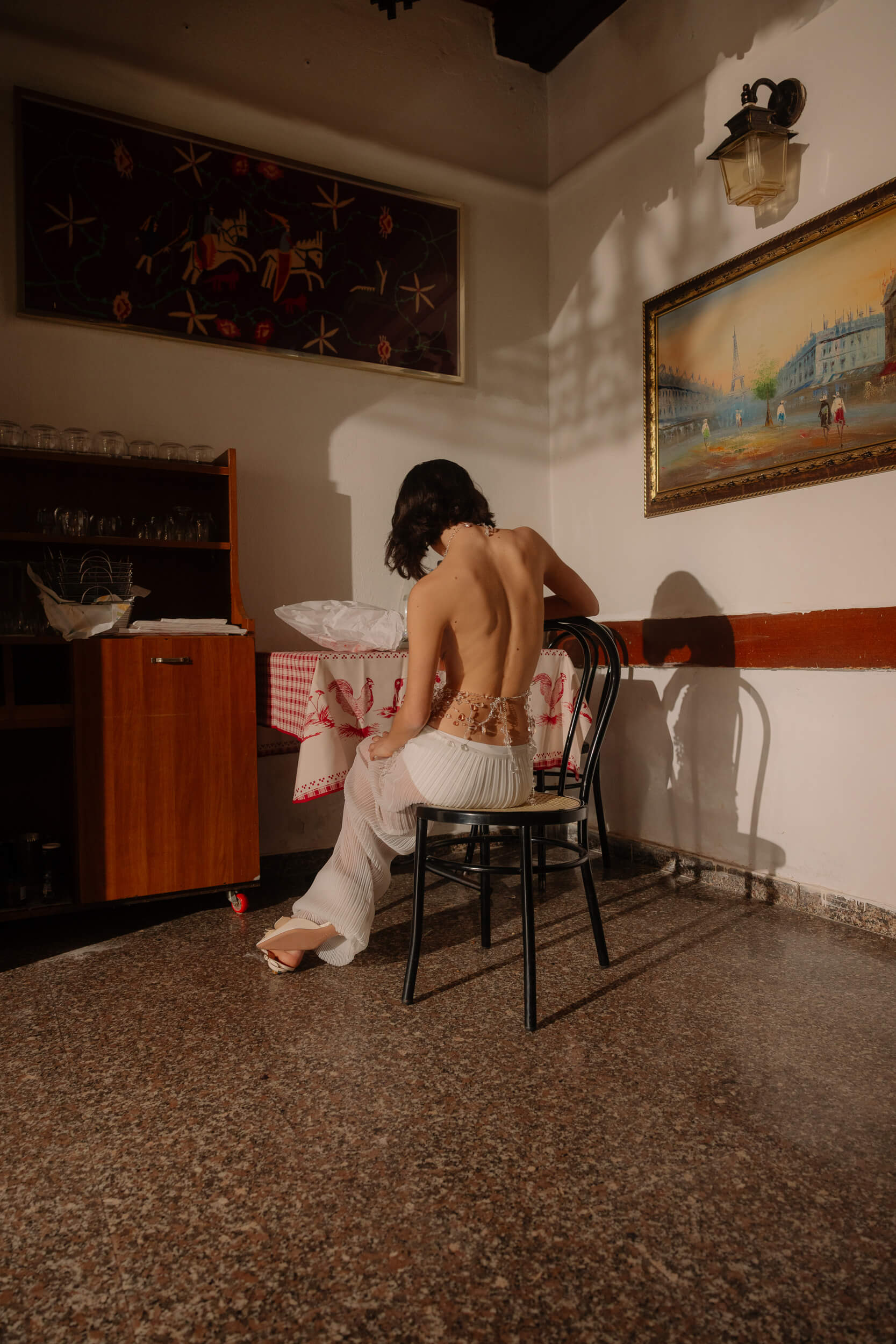
“A need to connect, to express, to share.”
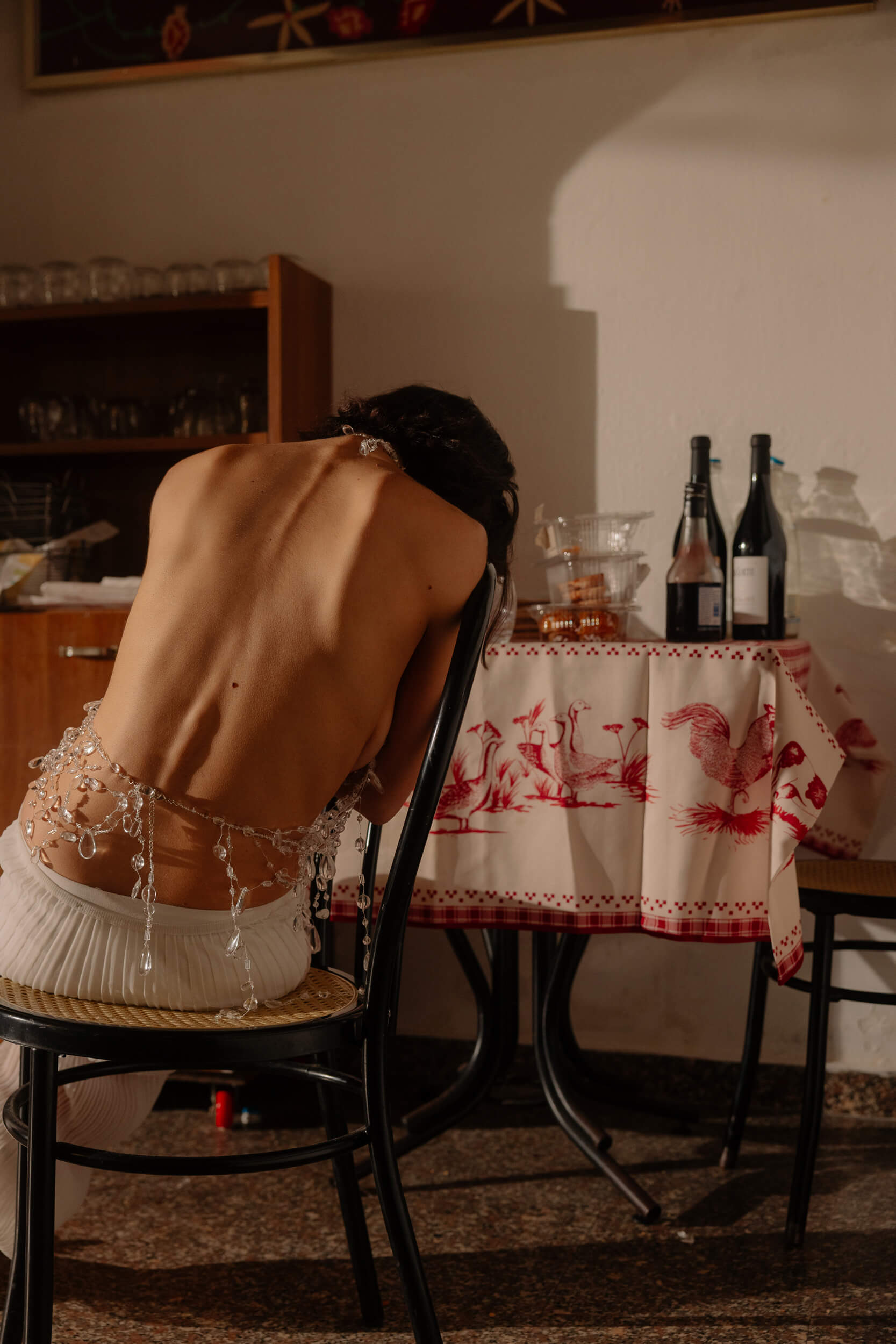
On set—or behind the scenes—what’s your must-have item?
I always have my notebook where I draw: it relaxes me a lot. I don’t have talismans or anything like that. But I’m a bit of a compulsive scribbler—I have this need to doodle constantly: when I’m nervous, when I’m getting ready in the dressing room, I scribble endlessly, even just the same word over and over.
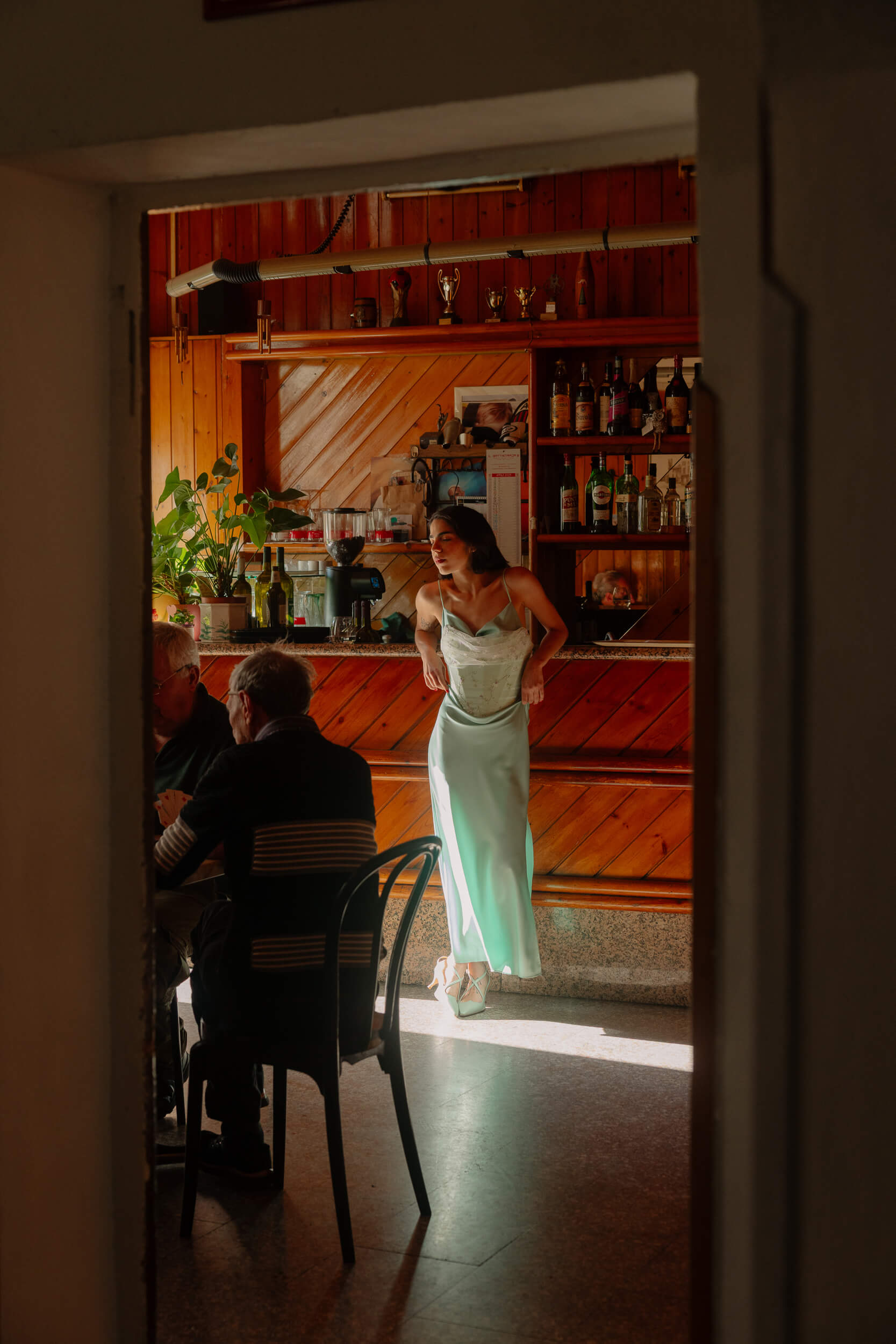
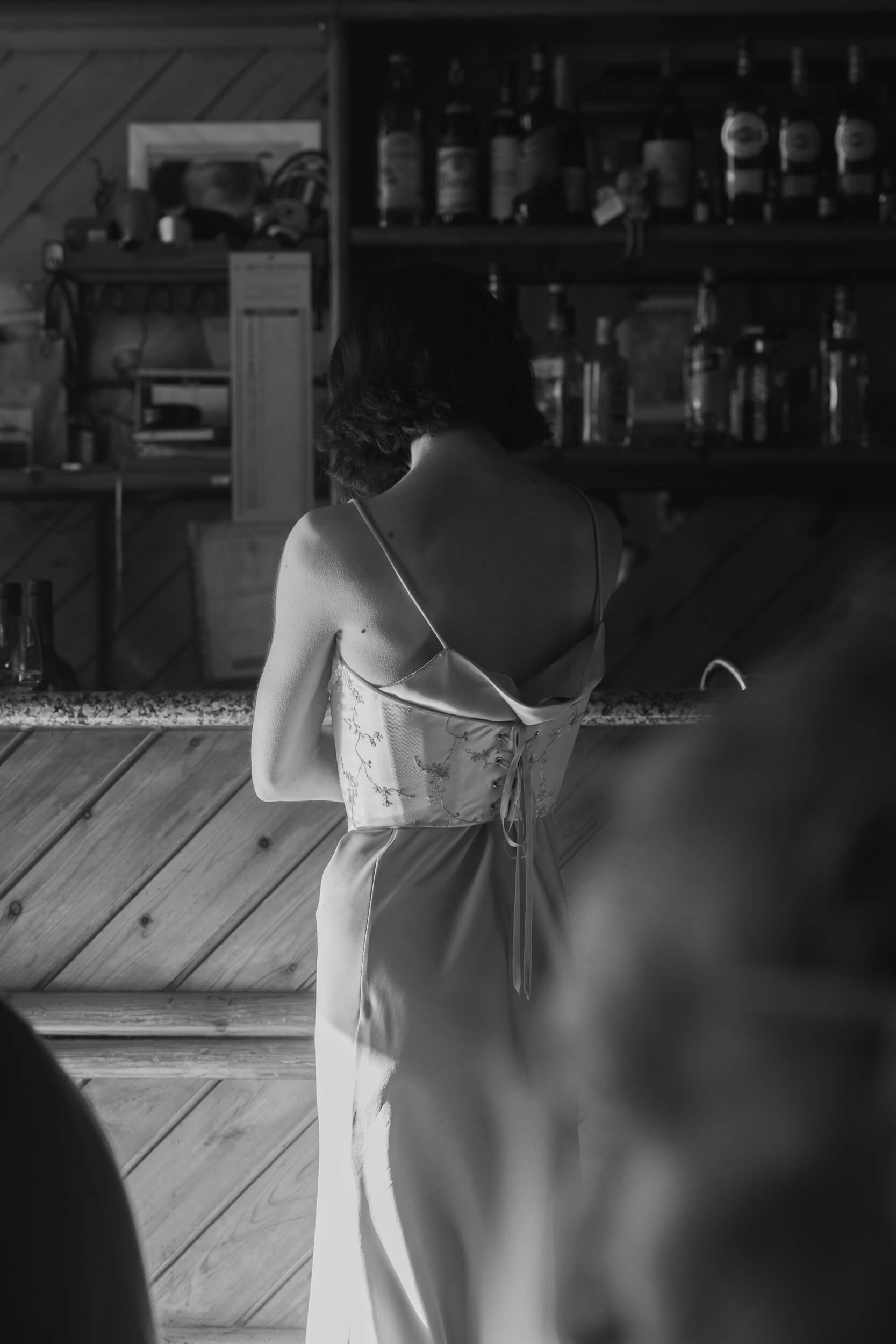
In life or in your career, what has been your greatest act of rebellion?
Coming back to Italy, coming home. After being away and living abroad for so long, the hardest thing I ever did was deciding to come back here, close to my family. It’s just as hard as leaving.
And what’s your greatest fear?
Not being able to smile, not feeling at peace.
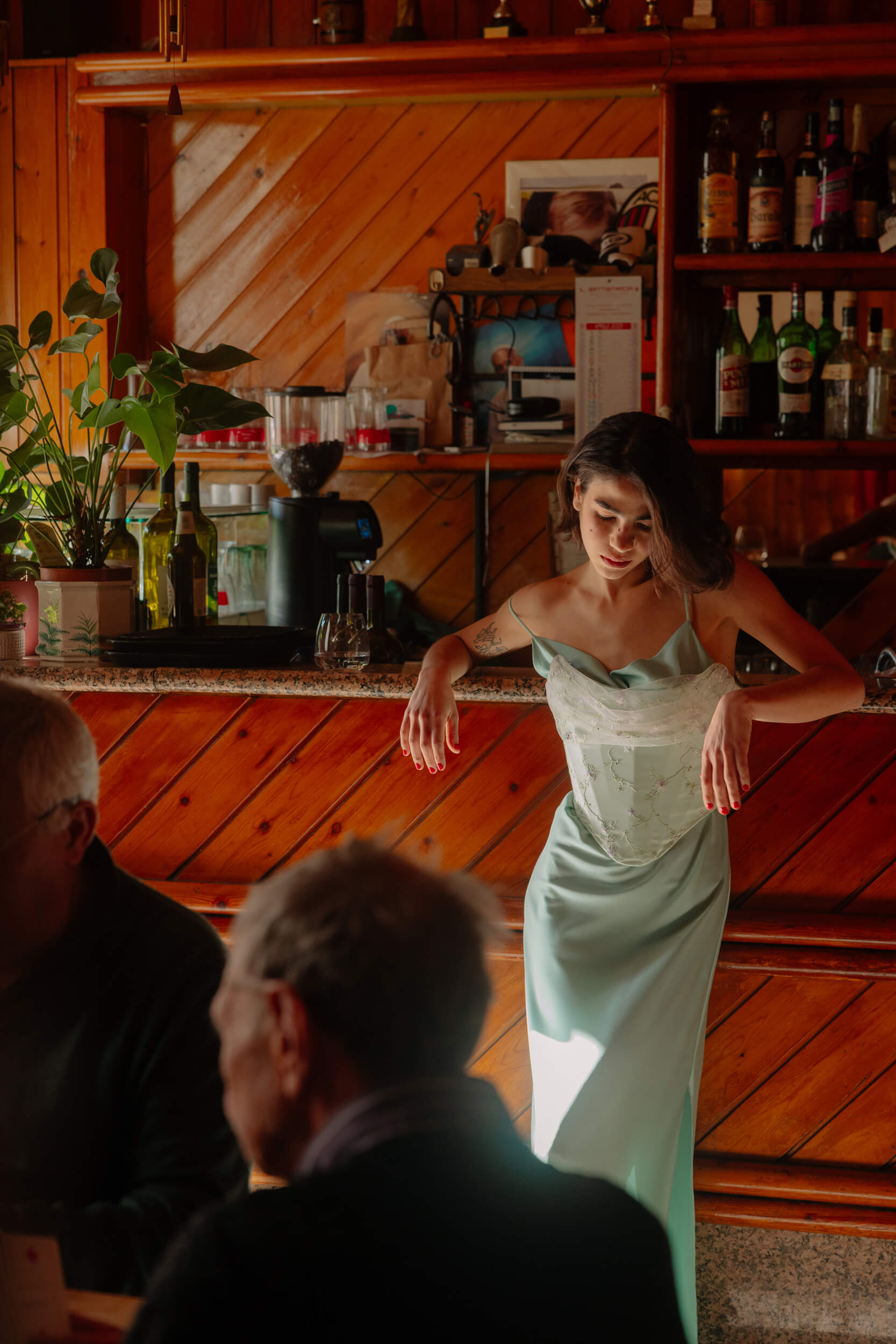
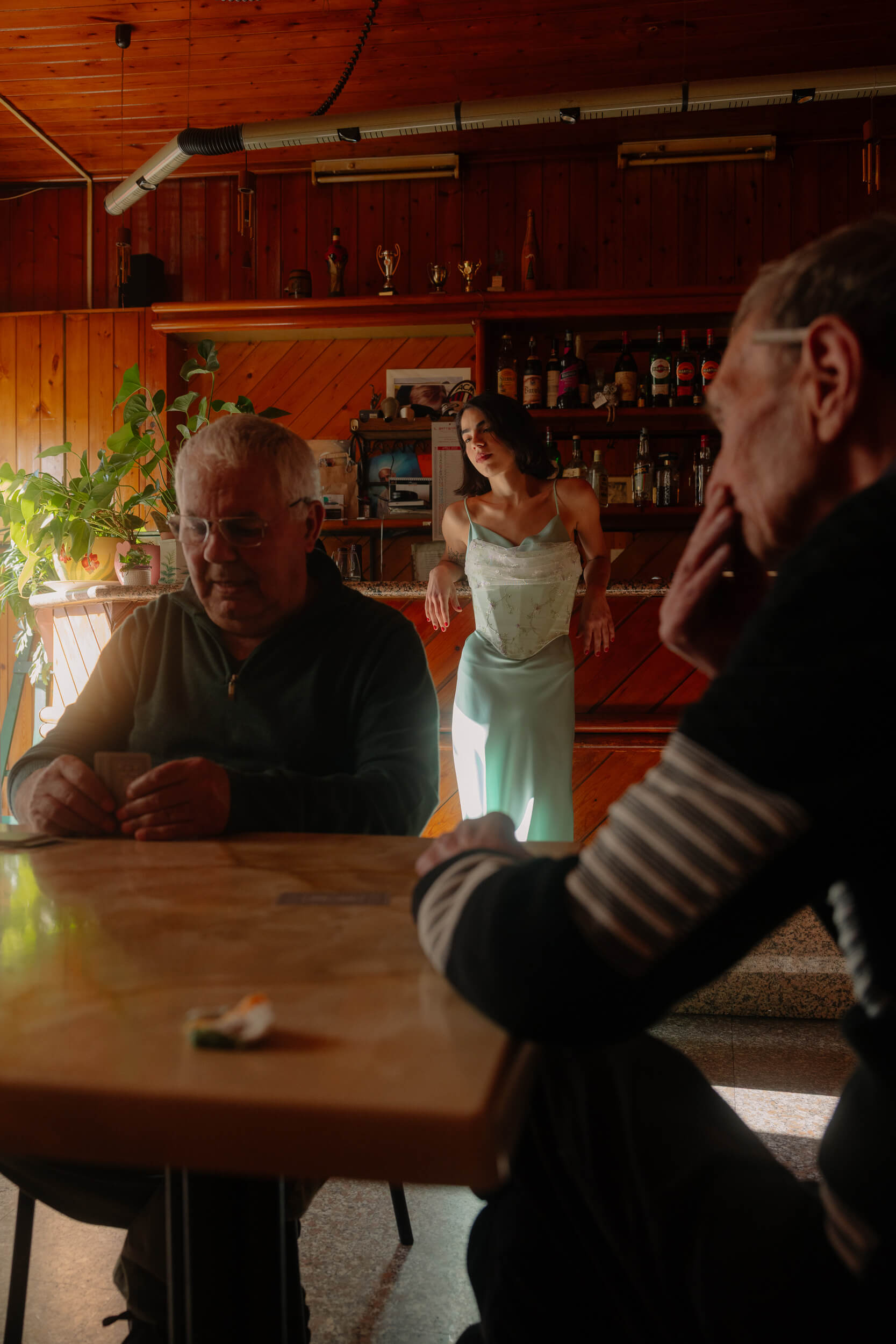
What’s been the most satisfying “fuck you” moment of your life?
When I didn’t get into Silvia D’Amico. Instead of trying again, I decided to apply to an academy in New York, the Neighborhood Playhouse. And I got in. Then later I got into RADA too, so I said, “Fuck you Rome and Italy!” [laughs]
Understandable! [laughs] What or who makes you smile?
My nephew, who’s one year old. He makes me smile because everything makes him smile.
It’s incredible—little kids are truly magical, they live in a world that doesn’t exist. Everything they see seems extraordinary. It must be amazing to discover the world like that, and that thought makes me smile a lot. Then I also smile when I hear beautiful thoughts from the people around me, when I least expect it, and it moves me. A while ago, I was walking around Rome and a gust of wind blew a bunch of dandelions into the air. There was a child with his dad who asked, “Dad, what’s that?” and his father, in English, replied, “I spy with my little eye an angel.” That really made me smile.
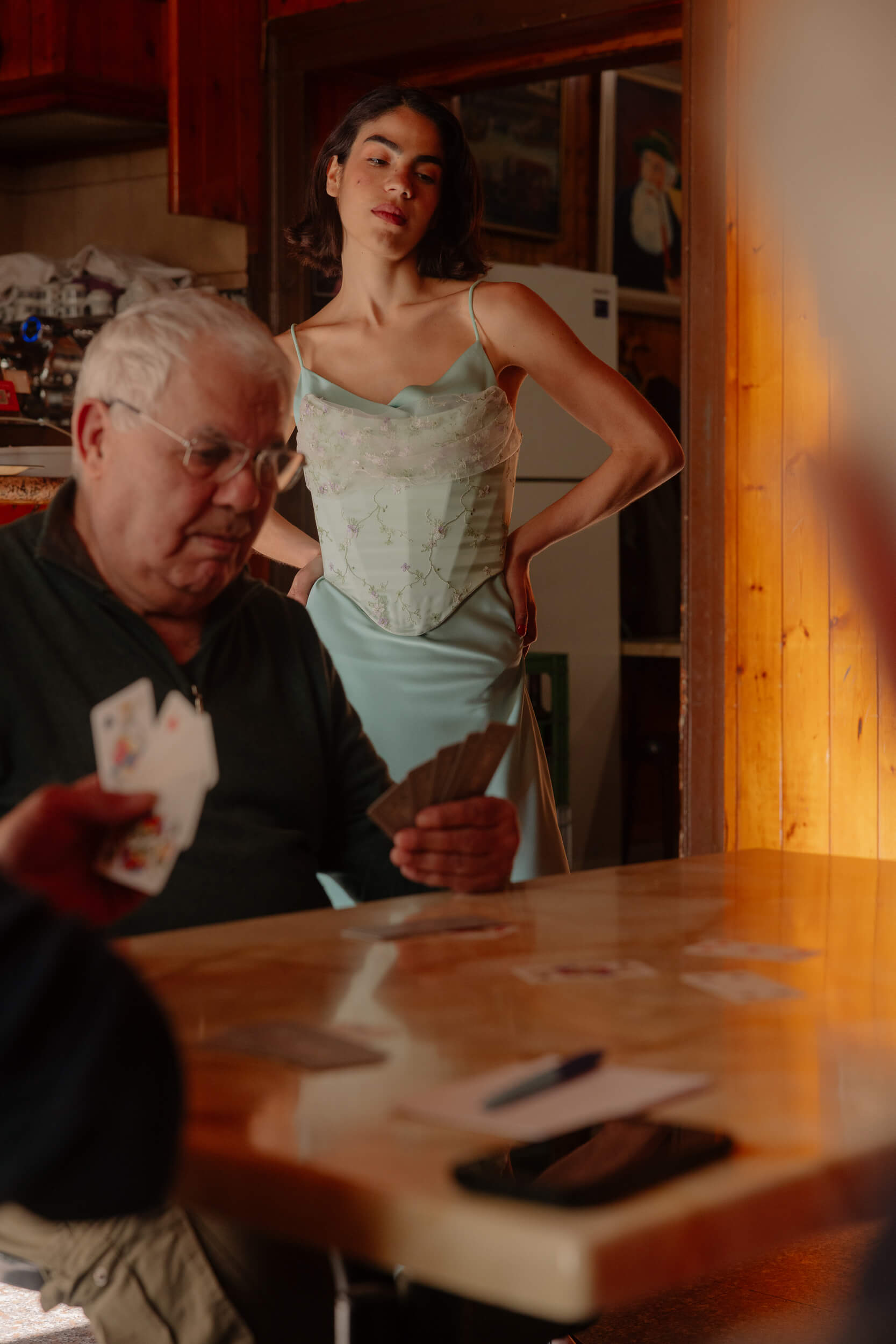
And what makes you feel safe and secure?
Being aware of who I am and my worth—that makes me feel secure. I’ve learned not to be haunted anymore by the anxiety and uncertainty of this profession, of this world. Now, when anxiety starts to creep in, I tell myself, “No. I know what I’m doing.” It’s that awareness that makes me feel safe.
And what’s the most beautiful landscape in the world, to you?
In Ustica, I saw a breathtaking view, simply because the sea was there. So I’d say there’s nothing that fills my eyes and heart more than the sea.
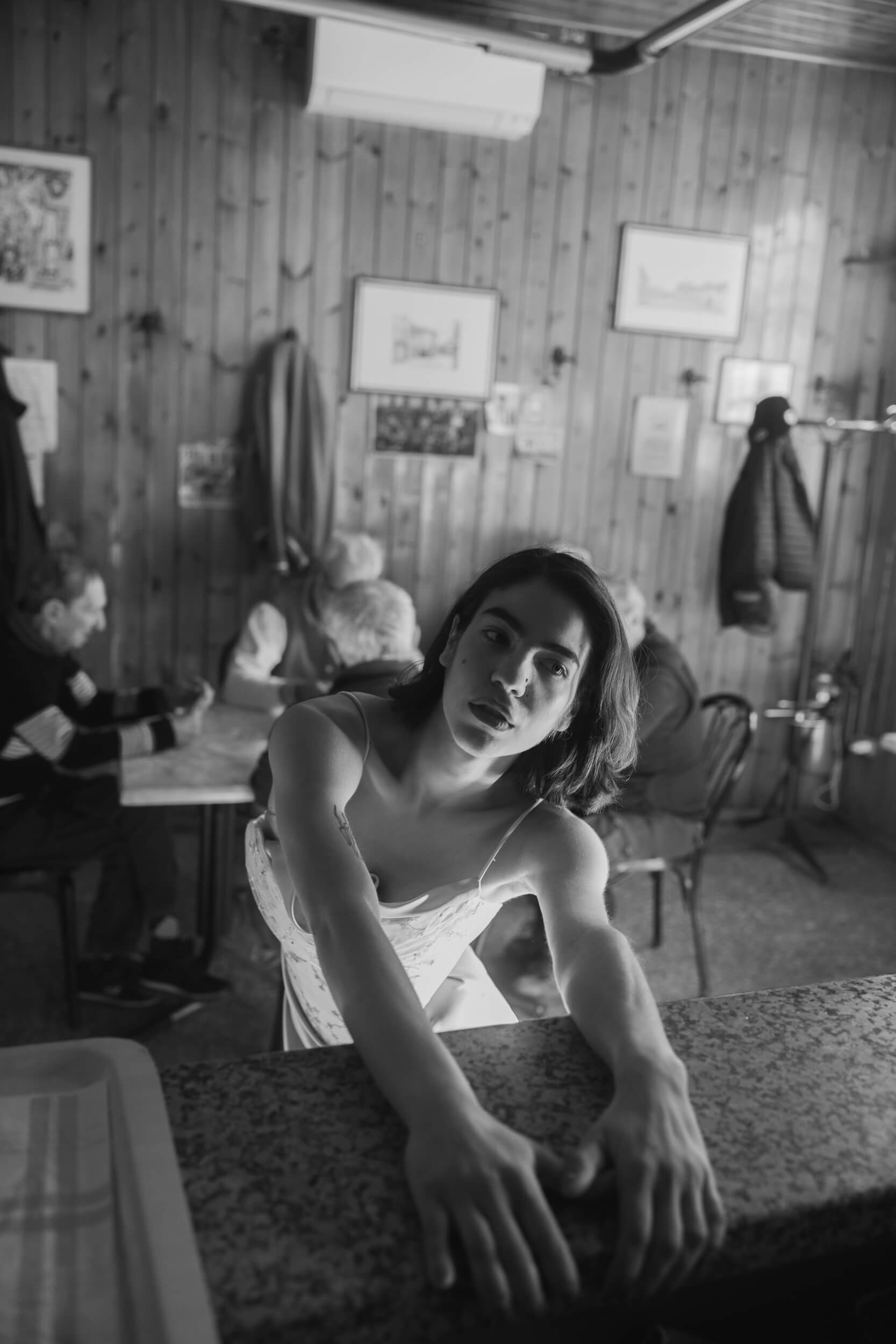
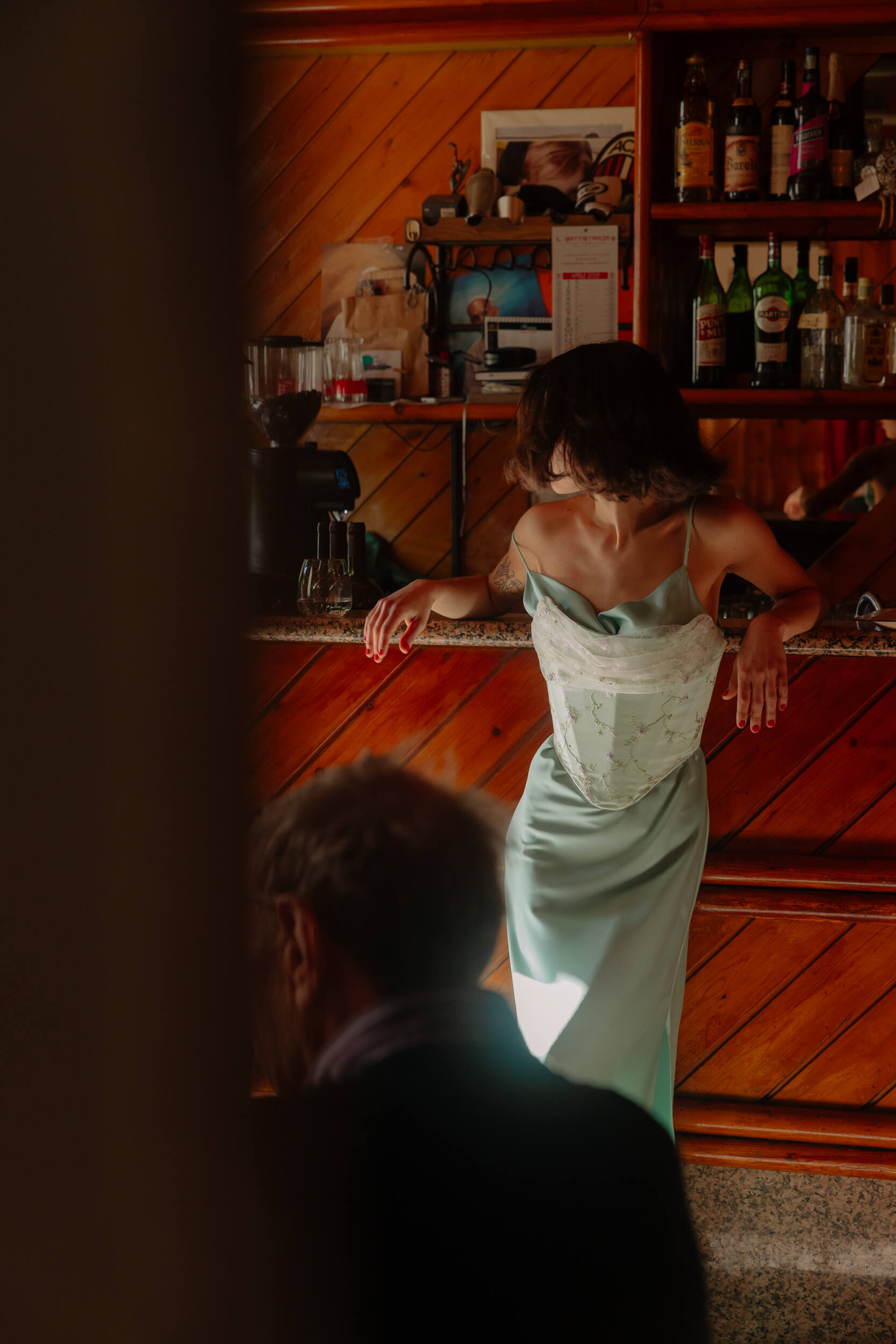
What does it mean to you to feel comfortable in your own skin?
It’s hard nowadays. There are many moments when I don’t feel comfortable in my skin or my body. You know, I think there’s a difference between loving yourself and feeling at ease in your body. Loving yourself is something that has only to do with you: I love myself madly, even if I don’t feel comfortable in my skin. But feeling at ease also involves others, because we’re always a little tied to others, and that relationship between us and them is hard to balance. Maybe it means being kind to yourself, being tender—and that’s a hard thing to learn. But it’s important to use the right words with yourself and with others.
What is your happy place?
My happy place is somewhere that no longer exists. A little house on a street that isn’t the same anymore, in a small town in Sicily called San Lorenzo, where I used to spend summer holidays with my family. Everything was perfect there. I have memories of the afternoon light, the sun at three o’clock in the afternoon in August, of a peace that no longer exists. The thought of that time, that house, that street—it’s a perfect memory.
Is there another place that has taken the place of that house now?
No, there’s nothing like that one, but that’s okay, because now I want to build my own new happy place—my own home. It’s right that that island no longer exists, and that I have that beautiful memory of it. And then I’ll create another one.
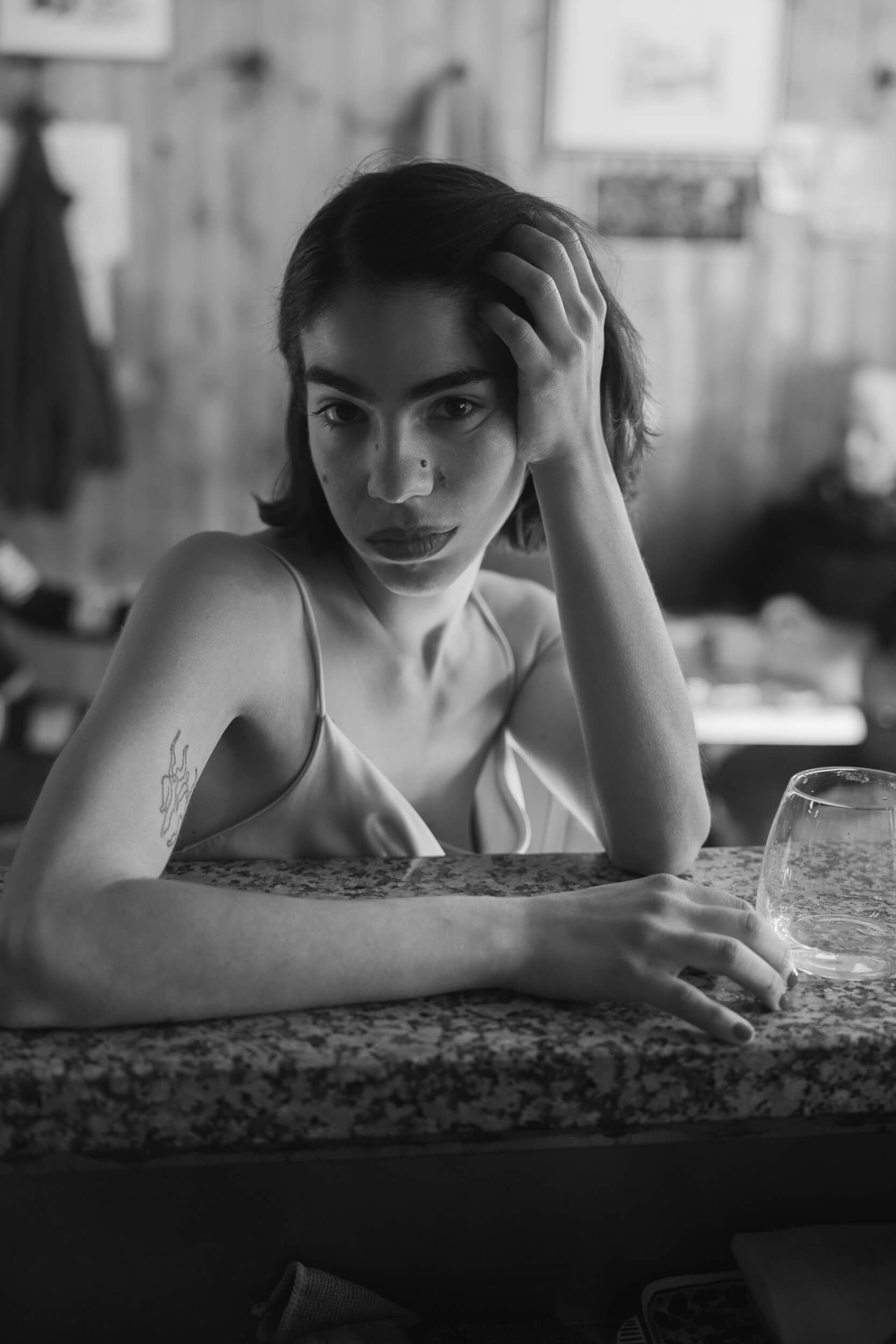
Photos & Video by Johnny Carrano.
Makeup & Hair by Sofia Caspani.
Location: Antica Trattoria Ambrosiana.
Thanks to M Punto Comunicazione.
LOOK 1
Dress: Francesca Piccini
LOOK 2
Total Look: Sportmax
Shoes: A. Bocca
LOOK 3
Total look: Francesca Piccini
Shoes: A. Bocca




